Blog
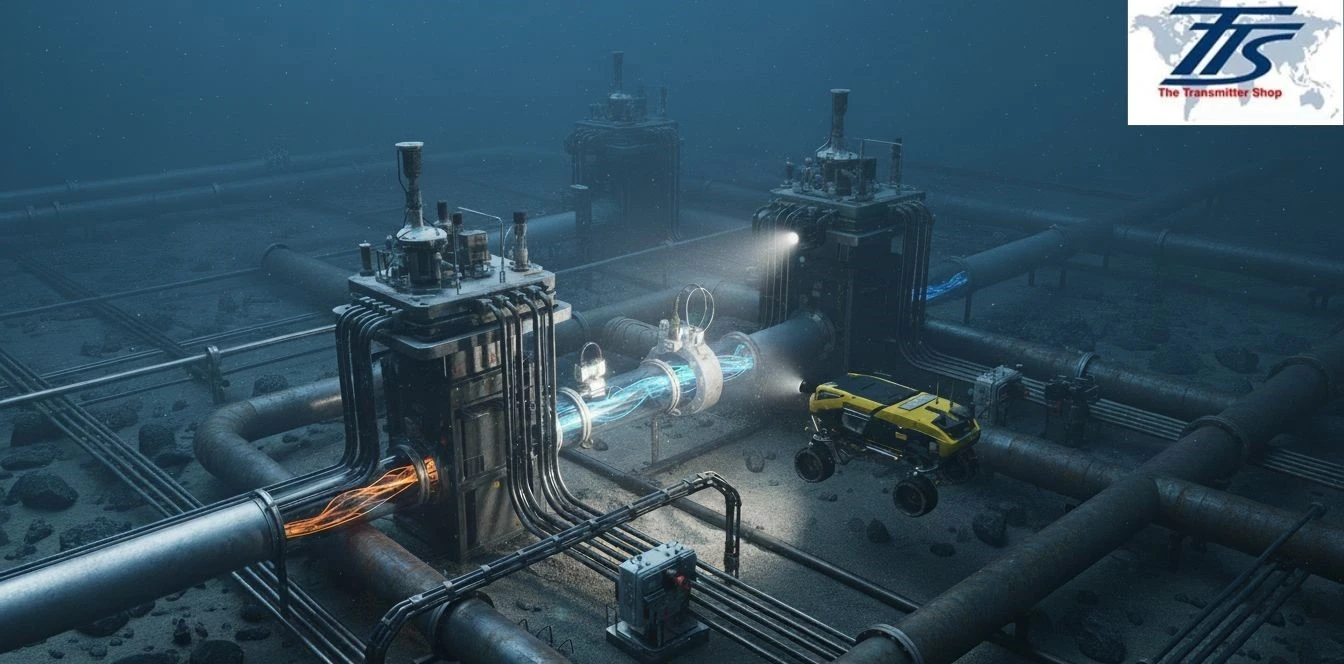
Brian Craig
September 29, 2025
Discover the key challenges of flow measurement in subsea oil and gas operations, from high pressure and multiphase flows to corrosion and limited accessibility. Learn how advanced flow transmitters and emerging technologies like MPFMs, fiber optics, and digital twins are enabling accurate, reliable, and efficient subsea monitoring.
Read More...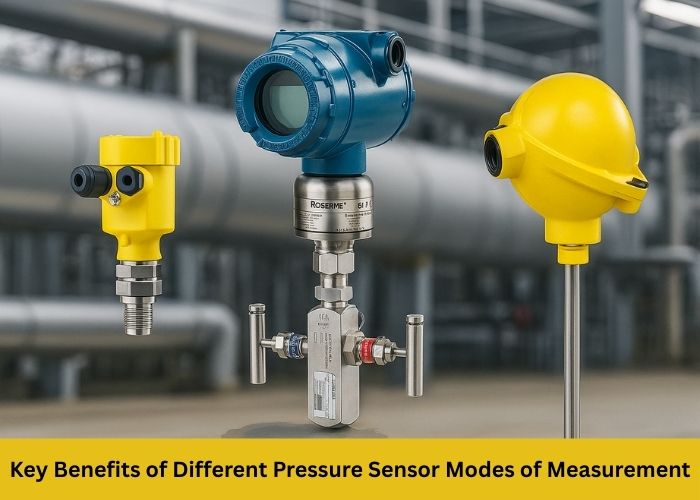
Brian Craig
September 03, 2025
When it comes to monitoring and controlling industrial processes, pressure sensing sensors play a vital role. They ensure that everything from oil pipelines to pharmaceutical equipment operates safely and efficiently. But not all sensors measure pressure the same way. Depending on the application, you may need a sensor that measures absolute, gauge, or differential pressure.
Read More...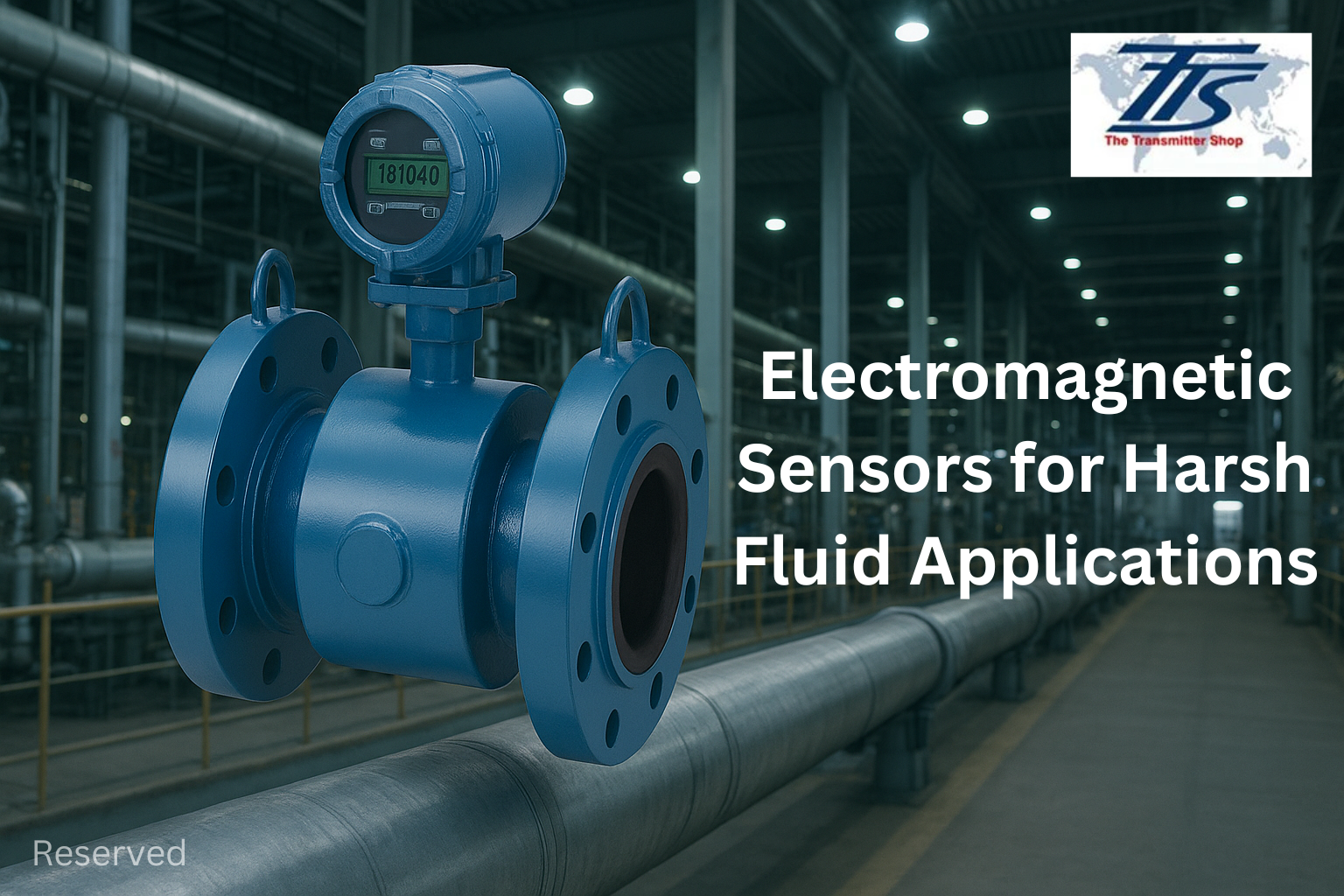
Brian Craig
August 22, 2025
Handling abrasive slurries or corrosive liquids is one of the toughest challenges in industrial flow measurement. Conventional mechanical meters often fail in such environments due to wear, clogging, or chemical attack.
Read More...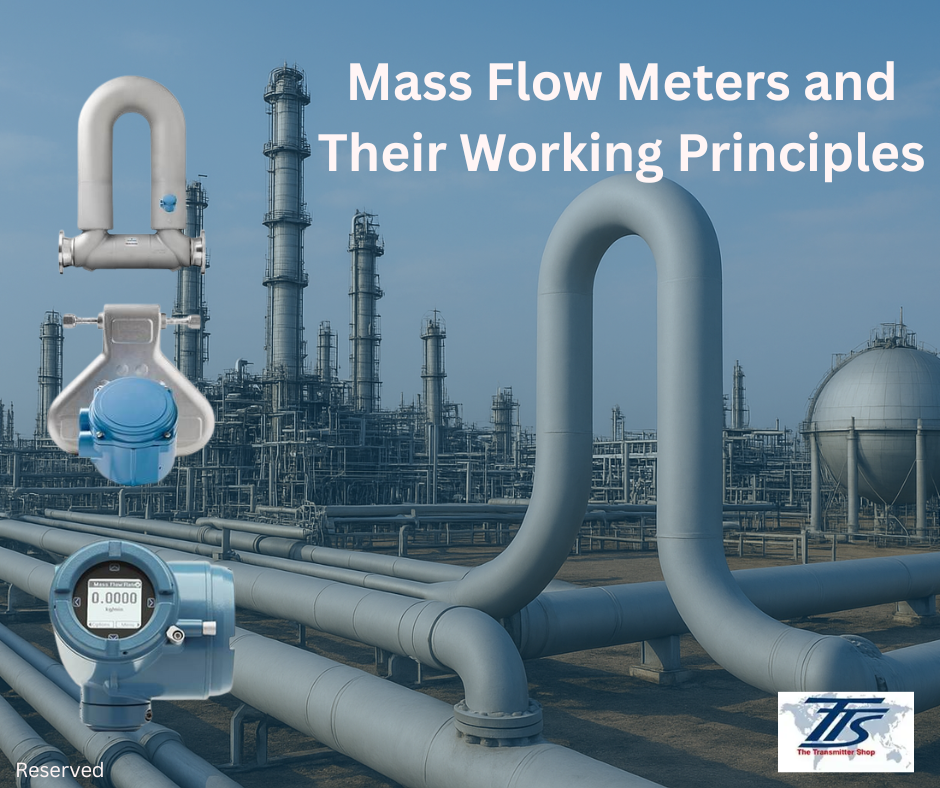
Brian Craig
August 21, 2025
A mass flow meter (sometimes called a mass flow sensor) is an instrument designed to measure the mass of a fluid moving through a pipeline. Unlike volumetric flow meters, read our blog for more information.
Read More...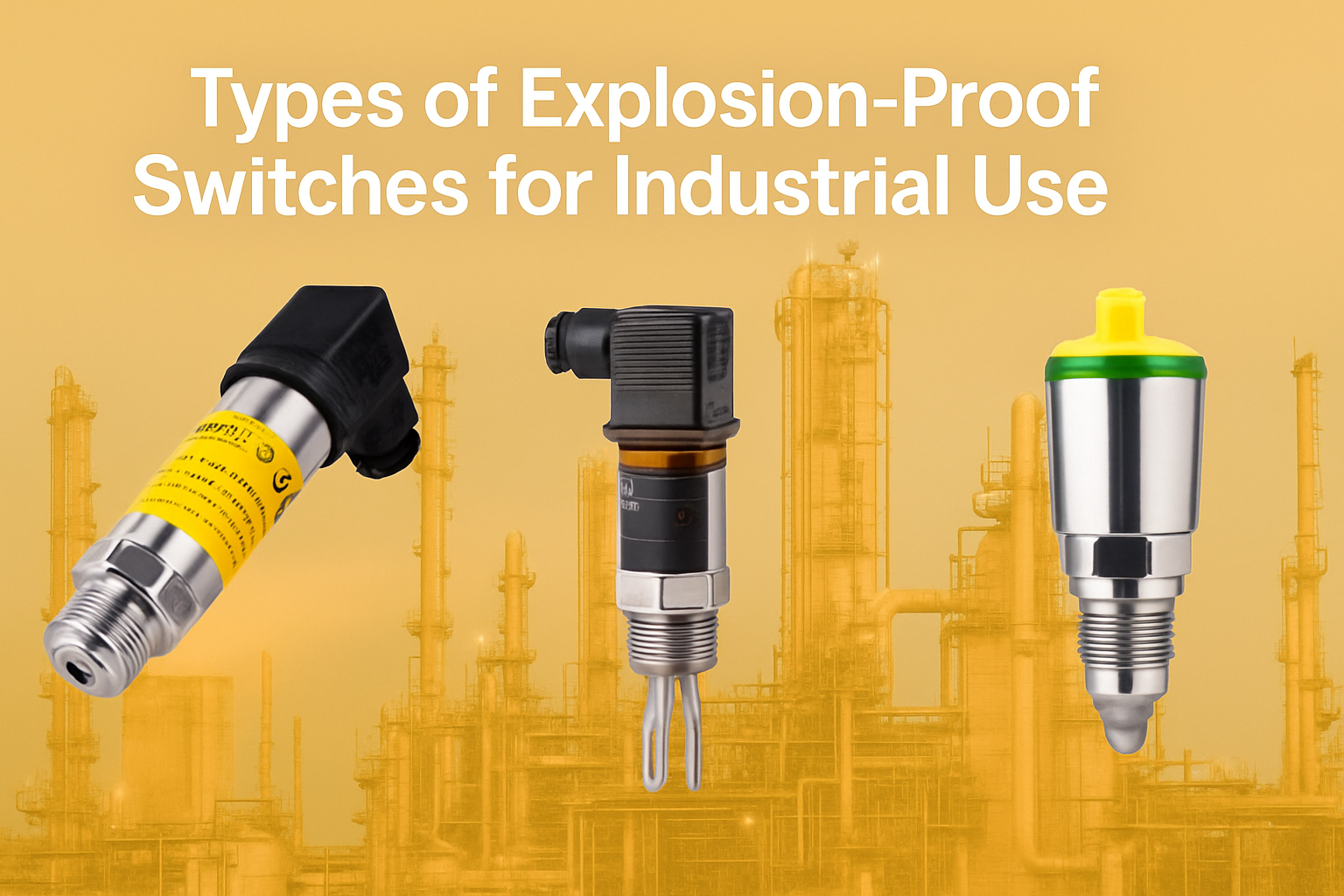
Brian Craig
August 06, 2025
The best explosion-proof switches for hazardous applications, discuss key features to look for, and recommend proven options trusted by industry professionals.
Read More...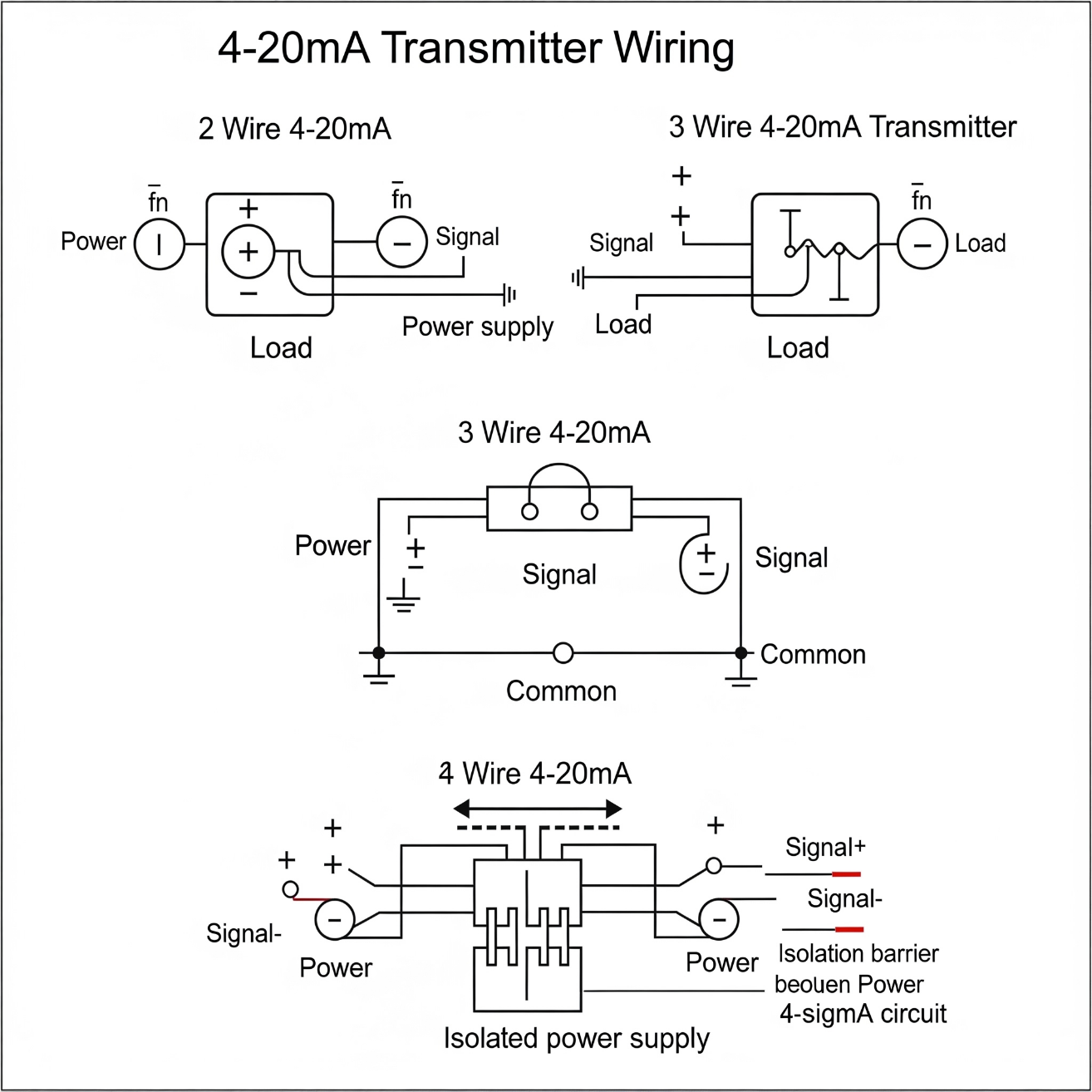
Brian Craig
July 30, 2025
In the world of industrial automation, precise and reliable signal transmission is paramount. At The Transmitter Shop, we understand that selecting the right transmitter wiring type for your instruments, whether it's a 4-20 mA temperature sensor, a 4-20 mA pressure transducer, or a differential pressure transmitter 4-20 mA is crucial for system performance and longevity. The 4-20 mA current loop has long been the industry standard for analog signal transmission, prized for its robustness against electrical noise and its inherent ability to detect broken wires (a 0 mA reading indicates a fault). But did you know that not all 4-20 mA transmitters are wired the same way? Understanding the differences between 2-wire, 3-wire and 4-wire systems is key to successful installation, maintenance and troubleshooting.
Read More...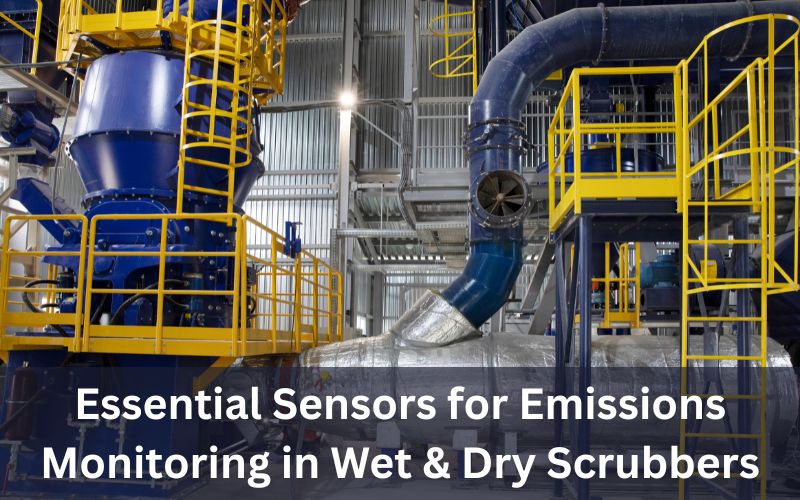
Brian Craig
July 18, 2025
In today’s increasingly regulated industrial landscape, emission control systems like wet and dry scrubbers play a vital role in reducing pollutants from flue gases. But efficient scrubbing is only part of the equation, accurate, reliable sensor instrumentation is what ensures these systems operate within compliance, stay optimized and avoid costly downtime.
Read More....jpg)
Brian Craig
June 26, 2025
As the world accelerates its shift toward clean energy, hydrogen gas has emerged as a key player in decarbonization efforts across industries, from fuel cell technology and chemical manufacturing to power generation and transportation. But while hydrogen offers tremendous environmental benefits, it also brings unique safety and measurement challenges due to its high flammability, low molecular weight, and invisible flame. To ensure both operational efficiency and worker safety, facilities handling hydrogen must deploy highly accurate flow measurement instruments and reliable gas and flame detection systems. At The Transmitter Shop (TTS), we provide complete hydrogen gas monitoring solutions that combine Coriolis flow meters, gas detectors and flame detectors, all engineered to meet the strict demands of hydrogen-rich environments.
Read More...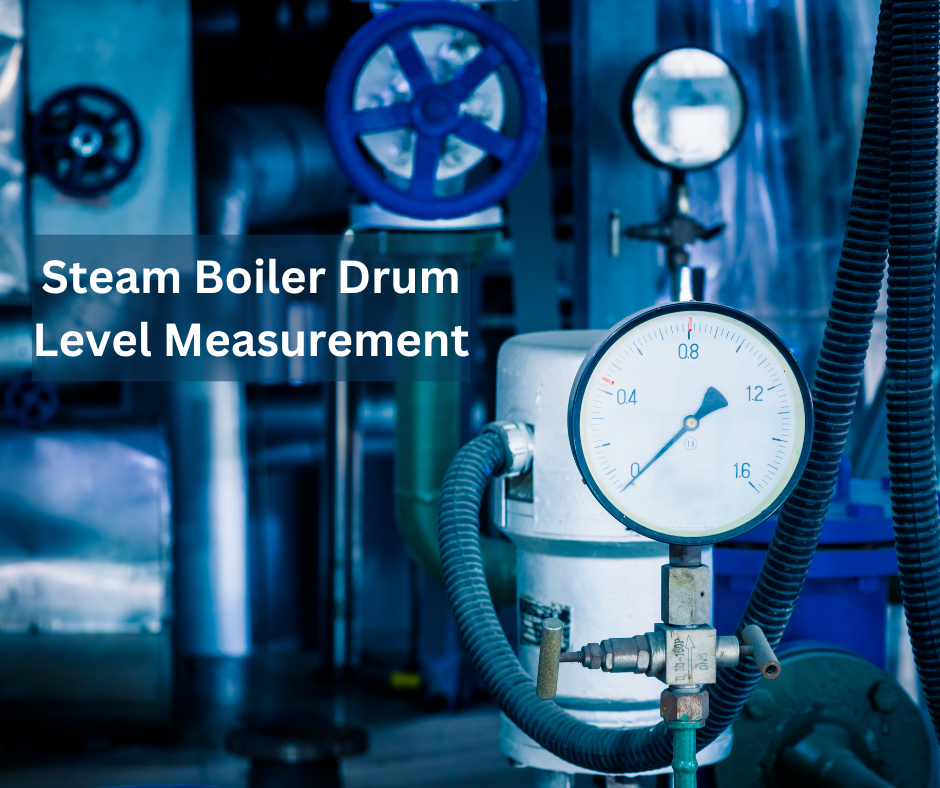
Brian Craig
January 29, 2025
Steam boilers form the backbone of various industrial applications, including power generation, chemical processing and manufacturing. An essential aspect of boiler operation is maintaining an accurate water level in the steam drum - this measurement ensures safety, efficiency and lifespan of your boiler system. Improper drum level control can have dire repercussions. Low water levels may lead to overheating and damage of boiler tubes; high levels may result in carryover, diminishing steam quality and turbine efficiency. To address these concerns, industries utilize various measurement technologies for monitoring and controlling steam boiler drum levels accurately. This article describes various technologies used for steam boiler drum level measurement, their respective benefits and drawbacks, as well as how to select the optimal solution for your application.
Read More...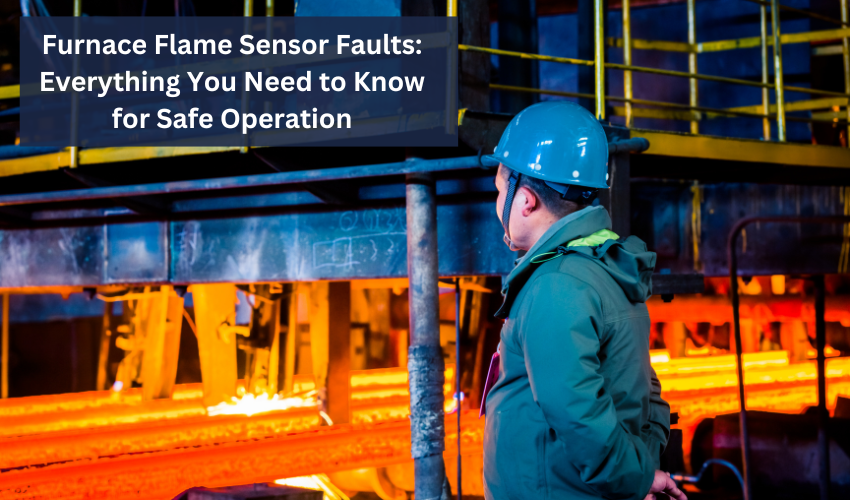
Brian Craig
January 13, 2025
In this blog post, we'll walk you through everything you need to know about furnace flame sensor faults - from identifying common issues to understanding how the sensor works and why its presence is essential - whether you're troubleshooting an existing issue with your furnace or simply seeking a better understanding of your system, this guide can be an invaluable source of knowledge about keeping it operating safely and efficiently. So come take a deeper dive and discover the role that the flame sensor plays as well as ways to spot and resolve faults before they cause bigger issues!
Read More...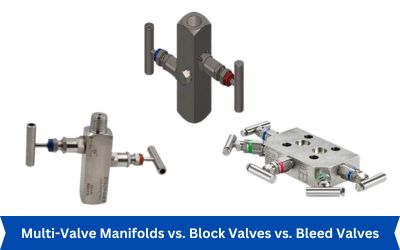
Brian Craig
October 28, 2024
Discover the differences between multi-valve manifolds, block valves, and bleed valves. Learn how each type functions, their unique benefits, and ideal applications to make informed choices for your industrial needs.
Read More...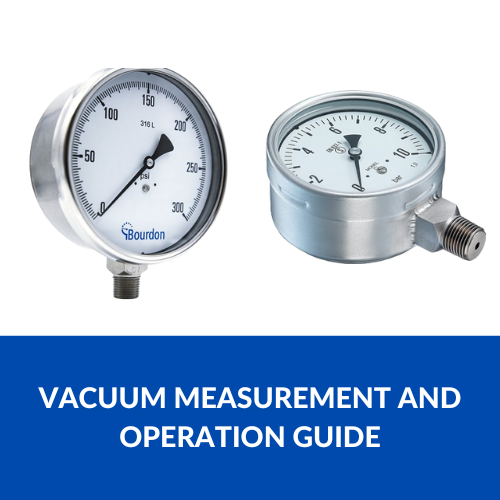
Brian Craig
September 03, 2024
Accurate vacuum measurement is not only a technicality but also a need in sectors such as scientific research, food packaging, and semiconductor manufacture. In many situations, knowing how to measure vacuum pressure accurately might mean the difference between success and failure. Everything you need to know about measuring vacuum pressure will be covered in this tutorial, from the fundamentals to sophisticated advice on maintaining accuracy.
Read More...
Brian Craig
August 22, 2024
Pneumatic pressure controllers play a role, in industrial settings especially in hazardous conditions. These devices use compressed air to manage and oversee pressure, temperature and flow rates. Safety is of importance when it comes to these controllers considering the dangers in hazardous environments.
Read More...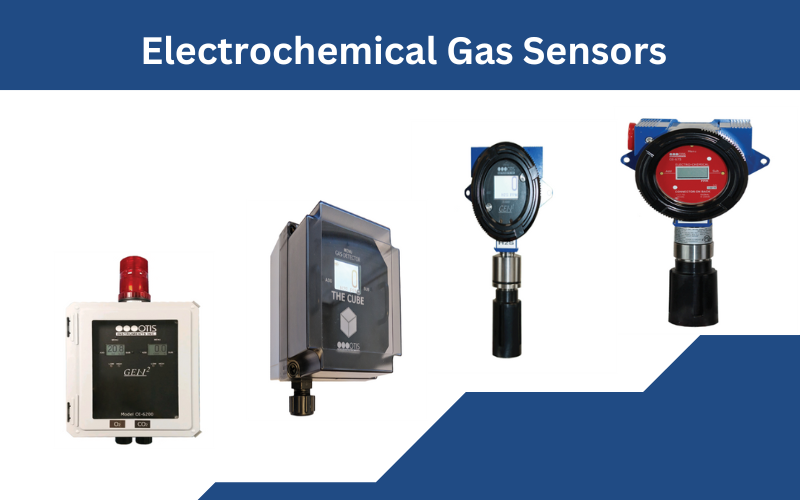
Brian Craig
July 15, 2024
Electrochemical detection proves to be an adaptable technique employed for examining substances in different settings. Its significance has markedly increased owing to its sensitivity, precision and capability, for real time monitoring. In this article we aim to delve into the fundamentals of sensing the methodologies applied and its uses in monitoring the environment. By grasping these notions we can acknowledge the function that electrochemical detection serves in safeguarding our surroundings.
Read More...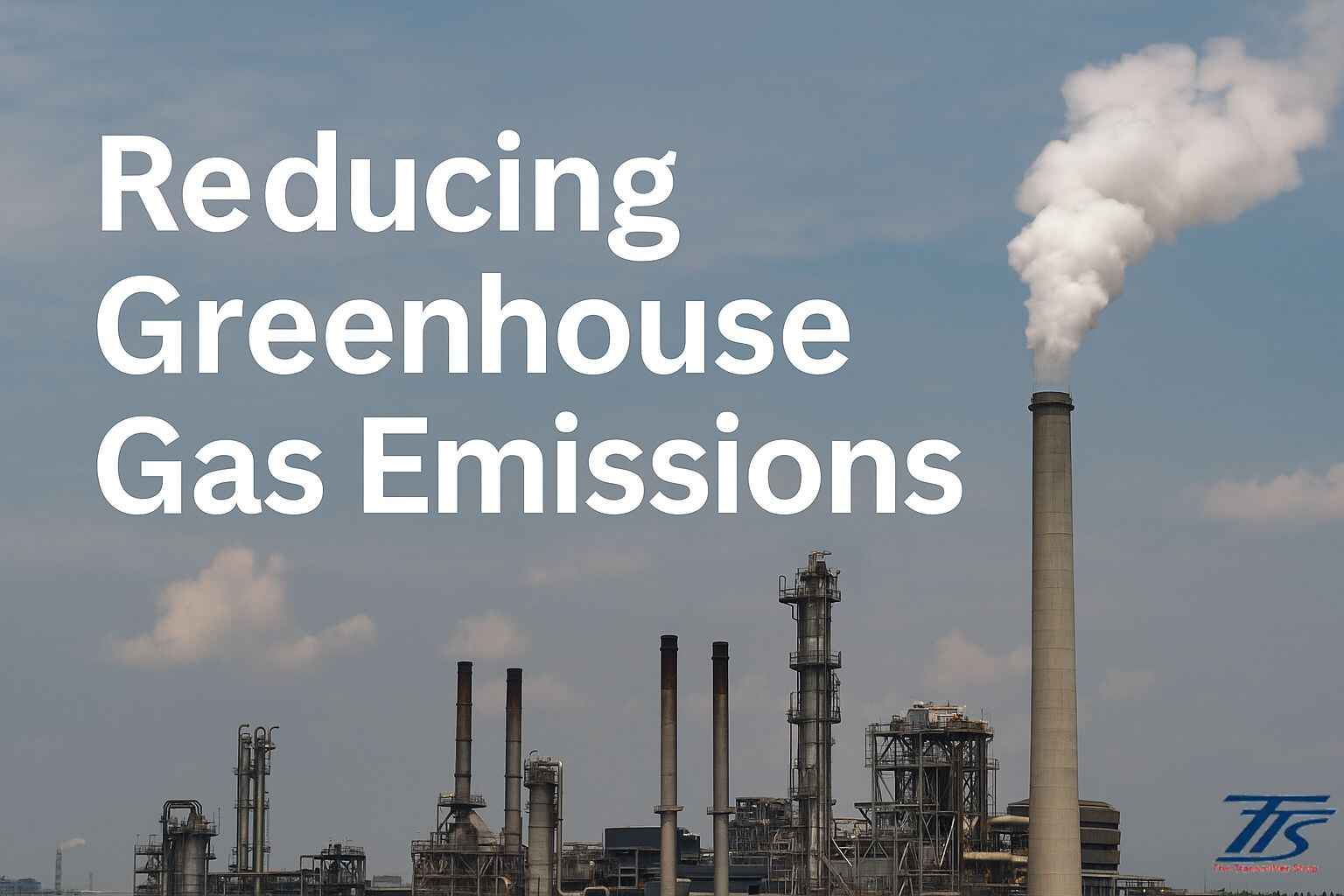
Brian Craig
April 30, 2024
Reducing greenhouse gas emissions is a cornerstone of combating climate change and minimizing its harmful effects. These emissions mainly carbon dioxide, methane, and nitrous oxide drive global warming, contribute to rising sea levels, and increase the frequency and severity of extreme weather events. To address this critical issue and move toward a more sustainable future, it's essential to employ a multi-pronged strategy. A gas monitoring system is a critical tool for detecting, measuring, and managing gas emissions, especially those that contribute to greenhouse gas (GHG) accumulation in the atmosphere. These systems play a pivotal role in reducing greenhouse gas emissions by enabling businesses and organizations to identify, quantify, and control gas leaks, emissions, and other sources of pollution.
Read More...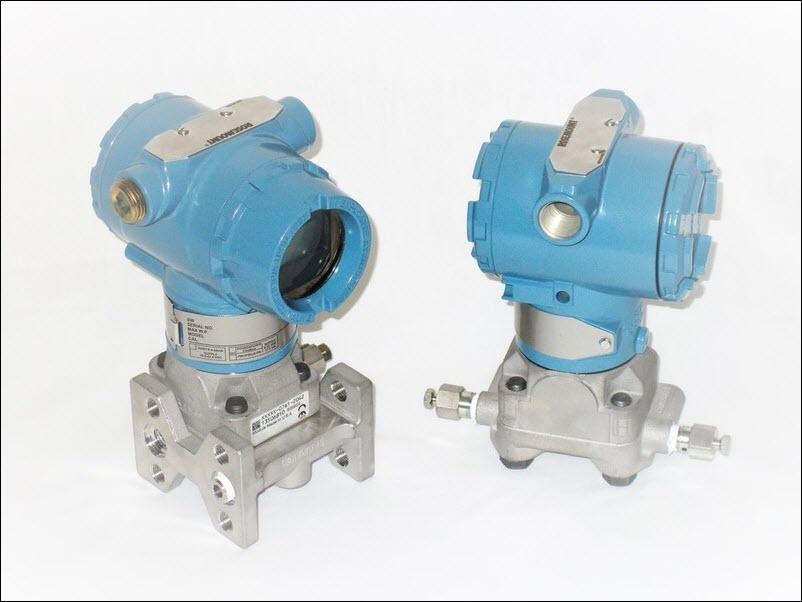
Brian Craig
March 07, 2024
Pressure transmitters are used in a wide variety of industrial applications to measure the pressure inside the machinery. These devices are considered critical products due to the following reasons: Pressure transmitters serve as warning systems about impending disasters due to high-pressure levels. These devices ensure that machines apply exact pressure levels during operation. These transmitters
Read More...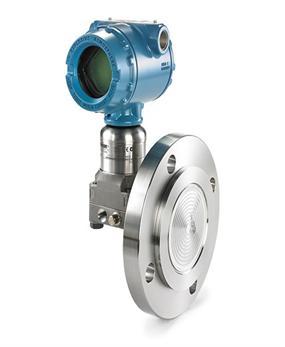
Brian Craig
March 07, 2024
As the name suggests, a level measurement transmitter is an instrument providing continuous level measurement. It can be used to determine the level of liquid or bulk-solid at a particular time. Levels of media such as water, viscous fluids, and fuels, or dry media such as bulk solids and powders can be measured using the
Read More...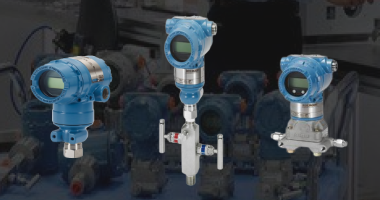
Brian Craig
February 28, 2024
Nuclear power plants stand as intricate facilities engineered to capture the energy unleashed in nuclear fission reactions, translating this power into electricity. In meeting the ever-growing global energy needs, these plants emerge as pivotal contributors, providing a substantial and dependable source of power. What sets them apart from conventional fossil fuel-based power plants is their unique method of electricity generation through controlled nuclear reactions. This controlled process often involves the utilization of uranium or plutonium isotopes, distinguishing nuclear power as a distinct and powerful force in the energy landscape.
Read More...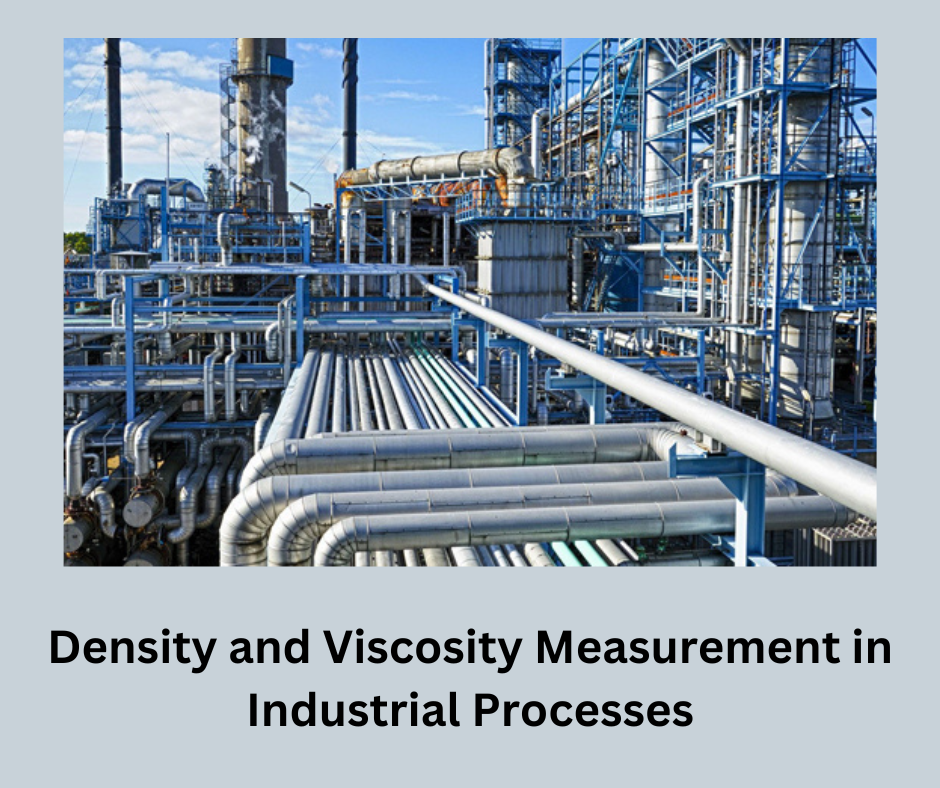
Brian Craig
January 18, 2024
In the intricate landscape of industrial processes, precision and control are paramount. Two fundamental properties that play a pivotal role in achieving this balance are density and viscosity. These physical characteristics hold the key to understanding and optimizing various processes across industries, ranging from chemical manufacturing and food production to oil refining and pharmaceuticals.
Read More...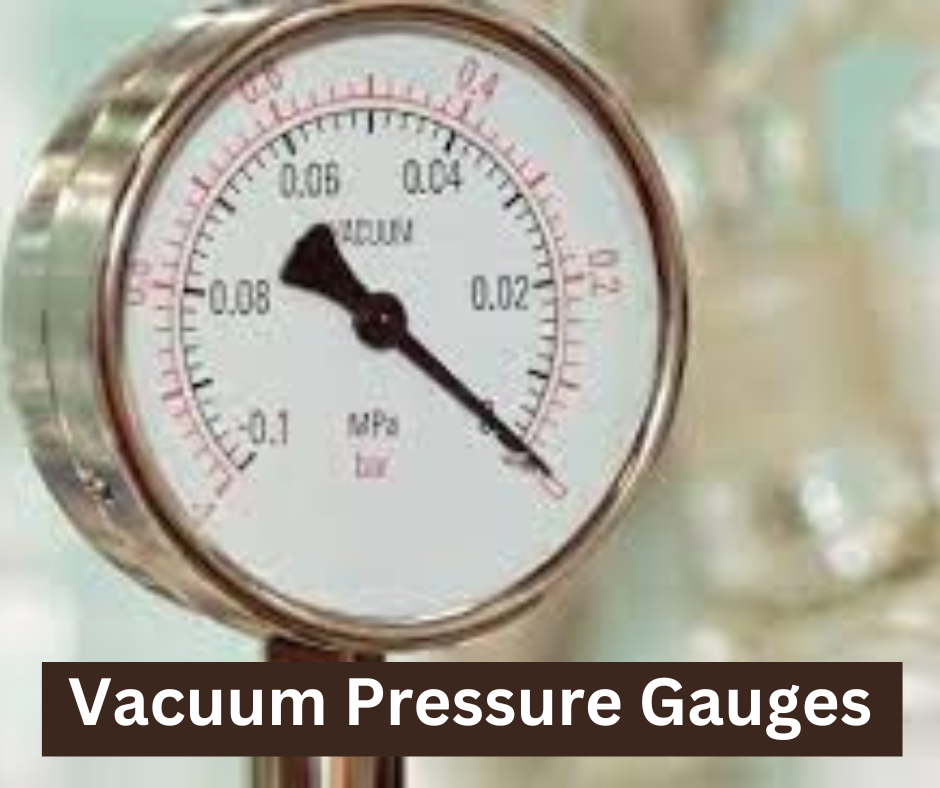
Brian Craig
December 12, 2023
Vacuum pressure gauges play a pivotal role in a multitude of industries and applications, serving as crucial instruments for measuring and monitoring pressure levels in vacuum systems. In this blog, we will delve into the fundamental aspects of vacuum pressure gauges, unraveling the mystery behind their operation and exploring their significance in diverse fields.Vacuum pressure gauges play a pivotal role in a multitude of industries and applications, serving as crucial instruments for measuring and monitoring pressure levels in vacuum systems. In this blog, we will delve into the fundamental aspects of vacuum pressure gauges, unraveling the mystery behind their operation and exploring their significance in diverse fields.
Read More...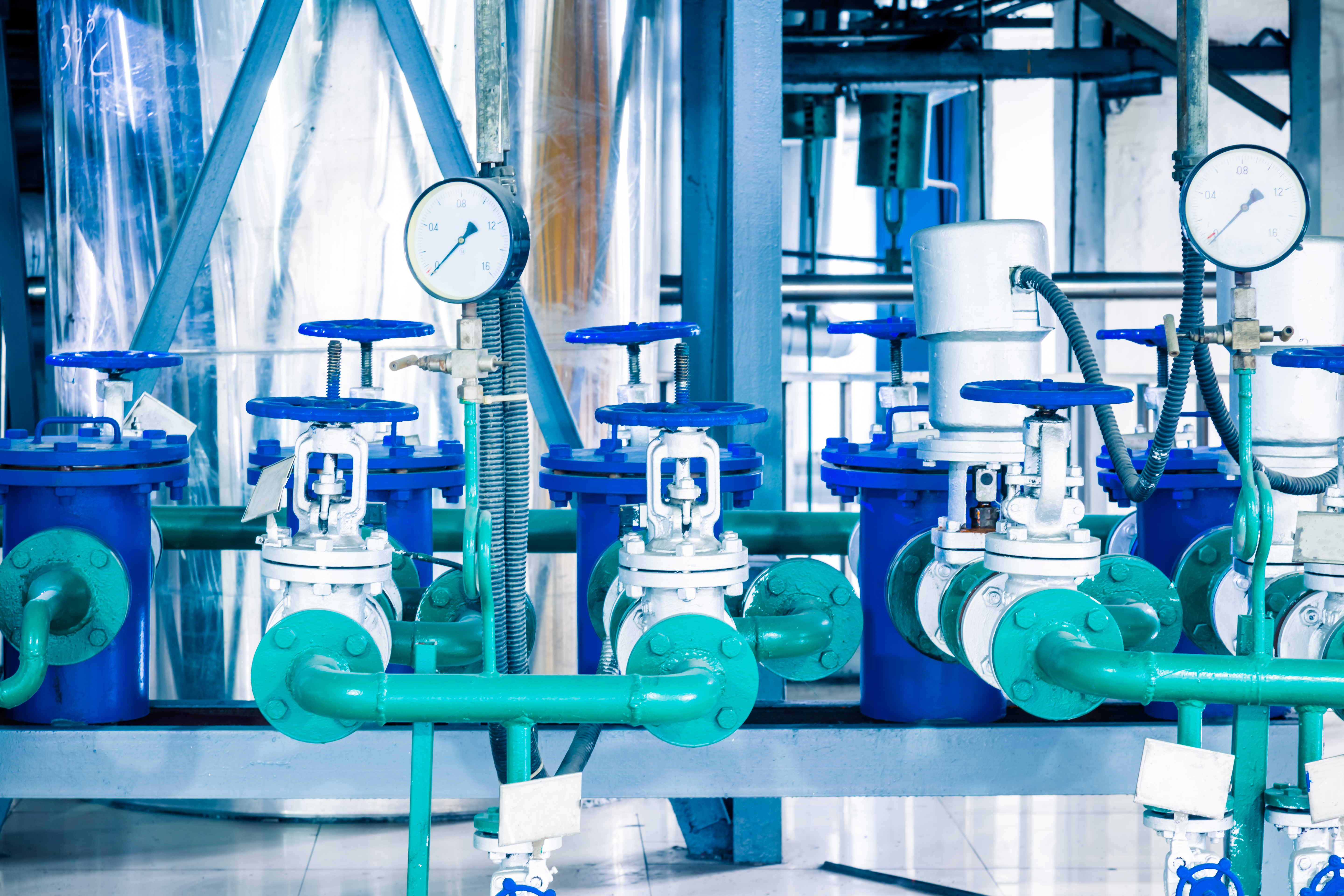
Brian Craig
November 28, 2023
Pressure monitoring in pump systems is a critical aspect of ensuring the smooth and reliable operation of various industrial processes. This comprehensive guide aims to shed light on the pivotal role that pressure monitoring plays in optimizing pump system performance. Understanding the nuances of pressure management is essential for industries ranging from manufacturing and agriculture to water treatment and beyond.
Read More...
Brian Craig
October 17, 2023
Air flow measurement playing important role in numerous industries, from ensuring the efficiency of HVAC systems to optimizing combustion processes in power plants. The task of measuring air flow is not without its challenges and professionals across different fields encounter a range of obstacles that can impede the accuracy of their measurements.
Read More...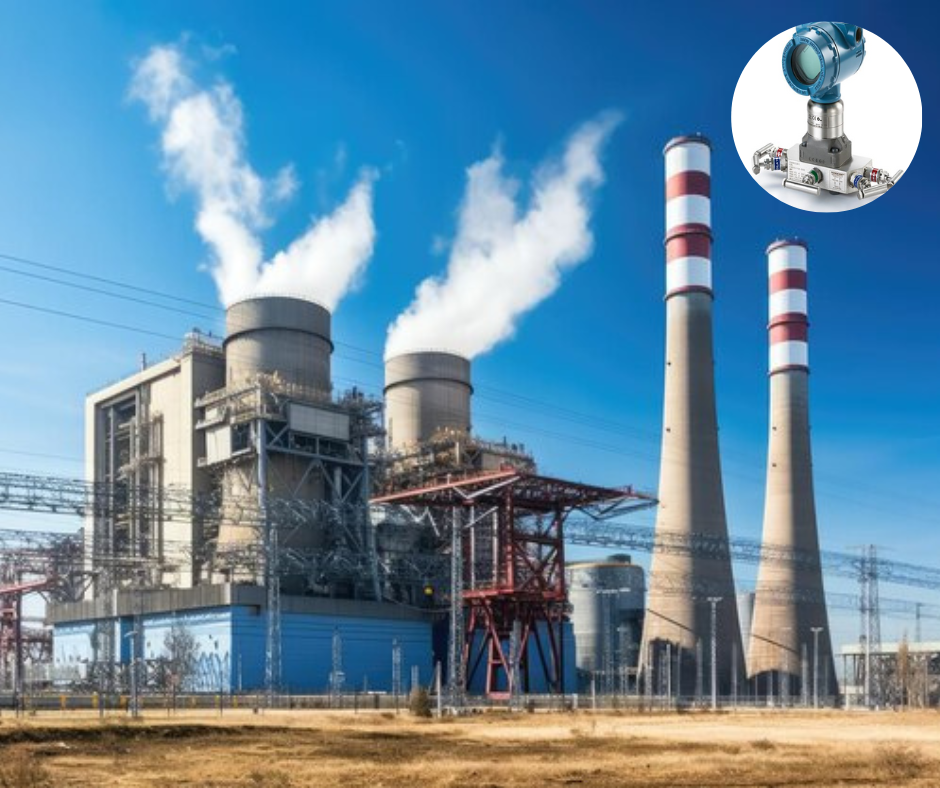
Brian Craig
September 27, 2023
The efficient production and distribution of energy are critical components of modern society, powering everything from homes and industries to transportation and technology. Within the vast landscape of energy production, power plants play a pivotal role in generating electricity from various sources, such as fossil fuels, nuclear reactions, renewable resources like wind and solar, and more. To ensure the consistent and reliable operation of these power plants, monitoring and controlling energy production is of paramount importance. In this context, transmitters emerge as indispensable tools that enable real-time data acquisition, analysis, and remote control, facilitating the optimization of power generation processes, safety, and environmental compliance.
Read More...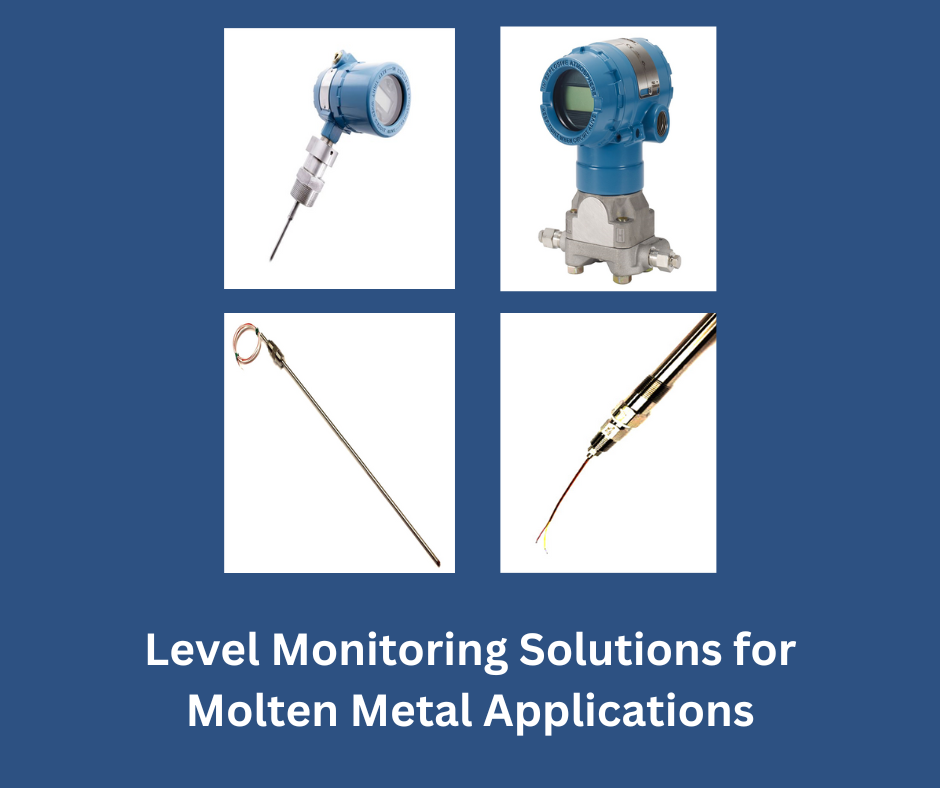
Brian Craig
September 26, 2023
In the world of heavy industry and metallurgy, molten metal plays a pivotal role in the production of countless essential components and materials. From steel manufacturing to aluminum casting, the process of dealing with molten metal demands the highest levels of precision, efficiency and safety. Ensuring that the liquid metal remains at the right levels is not only crucial for product quality but also for the well-being of workers and the integrity of equipment.
Read More...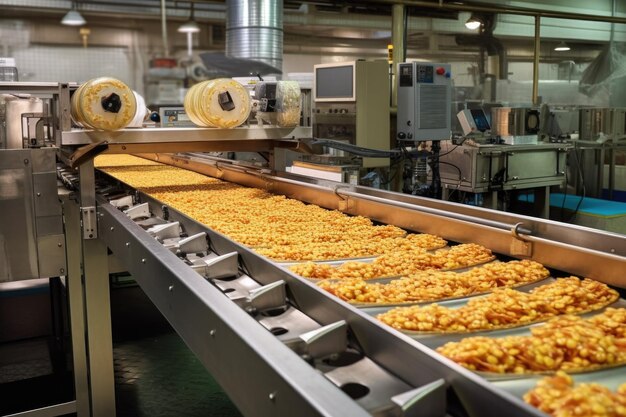
Brian Craig
September 14, 2023
The food processing industry is vital as it plays a critical role in guaranteeing the safety and quality of food products. It involves various stages of preparation, preservation, and packaging, which are essential for preventing contamination, extending shelf life, and delivering nutritious and safe food to consumers.
Read More...
Brian Craig
August 23, 2023
In the world of industrial automation, where precision and efficiency are paramount, positioners play a crucial role in ensuring that machinery and equipment perform their designated tasks with utmost accuracy. Positioners are devices designed to control the position of a mechanical element, typically a valve or an actuator, in response to a control signal. In essence, they bridge the gap between the digital control signals used in automation systems and the physical movement of industrial machinery.
Read More...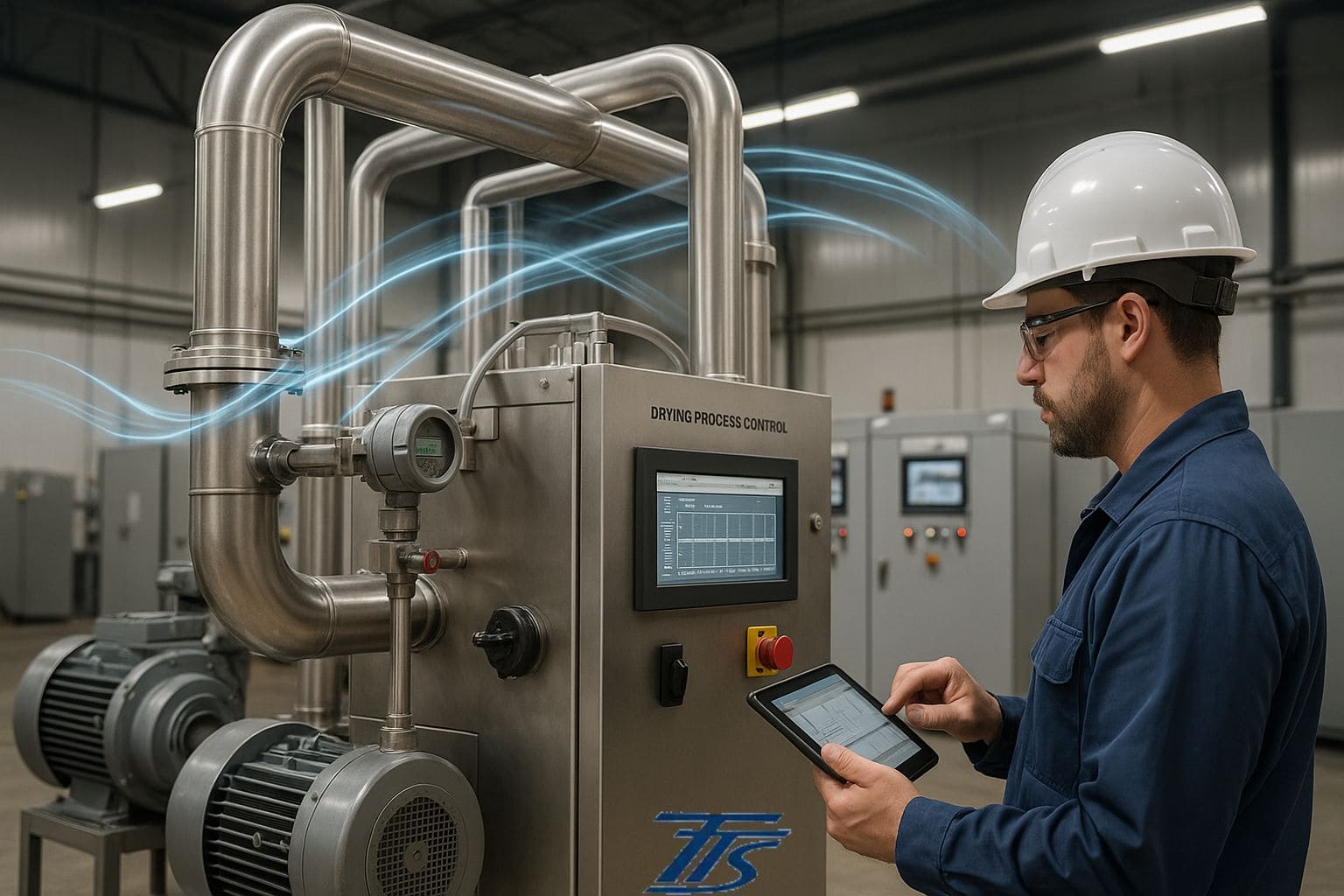
Brian Craig
July 11, 2023
Efficient drying processes play a critical role in numerous industries, ranging from food processing and pharmaceuticals to textiles and beyond. The ability to effectively remove moisture from products is vital for preserving quality, extending shelf life, and ensuring optimal performance. However, one often overlooked factor that can significantly impact drying performance is pressure fluctuations within the drying system.
Read More...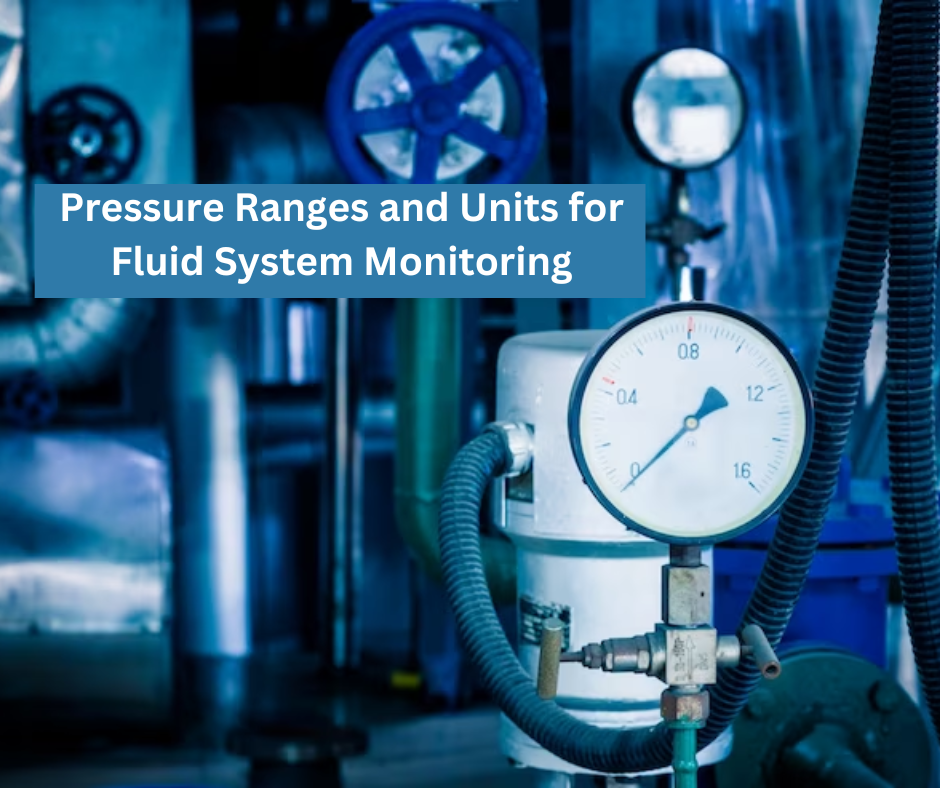
Brian Craig
June 27, 2023
Fluid system monitoring plays a crucial role in various industries and applications, ensuring the efficient and safe operation of processes involving liquids or gases. One of the key parameters to monitor in fluid systems is pressure. Understanding pressure ranges and units is essential for accurate and reliable monitoring, as it allows us to interpret and analyze the data effectively.
Read More...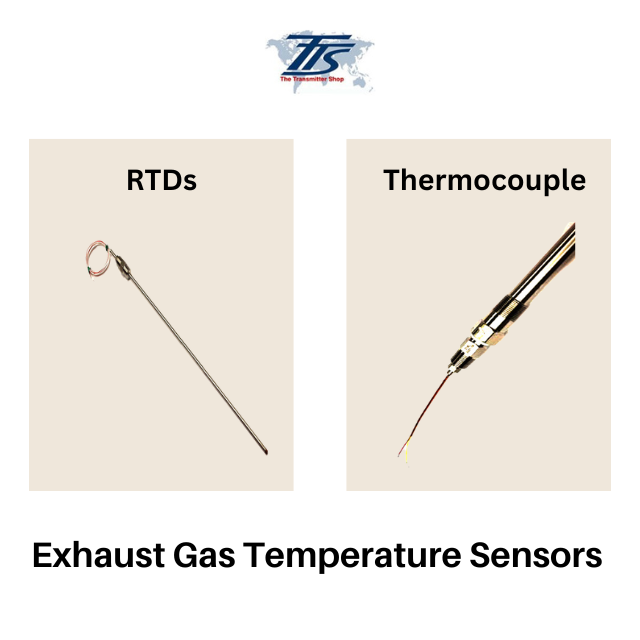
Brian Craig
May 10, 2023
Exhaust gas temperature (EGT) sensors are crucial components in modern engines, particularly those with forced induction systems. Exhaust gas temperature sensors are provide real-time temperature readings of the exhaust gases that are used by the engine control unit to regulate fuel injection and ignition timing. By monitoring exhaust gas temperature, the engine control unit (ECU) can optimize engine performance, reduce emissions, and prevent damage to the engine caused by overheating. This blog post will provide a comprehensive guide on how to choose the right exhaust gas temperature sensor for your engine. It will cover the different types of EGT sensors available, how they work, factors to consider when choosing one, key features to look for, installation and maintenance tips, and common problems that may arise.
Read More...
Brian Craig
April 28, 2023
Pressure instrumentation plays a crucial role in process industries by measuring and monitoring pressure in various applications such as pipelines, tanks, and vessels. It helps in ensuring the safe and efficient operation of the process by providing accurate and reliable pressure readings. However, accurate pressure measurement requires proper fluid flow isolation techniques to isolate the pressure sensor from the process fluid. The proper selection and maintenance of these techniques are critical to ensure accurate and reliable pressure measurement. In this blog, we will discuss the various types of fluid flow isolation techniques, their selection criteria, and installation and maintenance practices.
Read More...
Brian Craig
April 27, 2023
HVAC system balancing involves adjusting the airflow, temperature, and pressure in ductwork and pipes to ensure that the system is functioning efficiently and providing maximum comfort. In this blog post, we will discuss the benefits and challenges of HVAC system balancing and how pressure transmitters play a crucial role in achieving optimal balance.
Read More...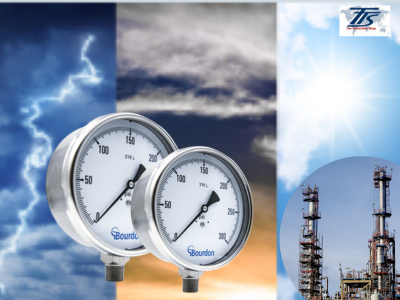
Brian Craig
April 07, 2023
Pressure gauges are used to measure and control pressure in an industrial system, and hence they are often exposed to harsh environments, involving high pressures, extreme temperatures, and so on. The pressure values are relative to the atmospheric pressure, and hence the latter is set to zero. While industrial pressure gauges are designed to withstand these parameters, they are impacted by temperature fluctuations. Ambient temperature may at times impact the accuracy or functioning of process pressure gauges and utility gauges. Mitigation of temperature-related effects is especially important for process gauges which are used in applications where precision, stability, and accuracy are crucial. This post discusses the effects of temperature on pressure gauges and tips to mitigate them.
Read More...
Brian Craig
May 30, 2022
Remanufacturing refers to the rebuilding of an originally manufactured but non-functional or worn out product. This is done to restart the product functioning to at least the minimum required level. Remanufacturing is often done using recycled or reused parts which keeps the cost at minimum. Usually, remanufacturing decisions for particular products are made by business owners based on their functional and financial feasibility and demand as well some other factors such as the durability and lifespan of the materials used in the product. Various engineered instruments such as control valves and transmitters can be remanufactured. This post discusses at length about remanufactured transmitters and control valves.
Read More...
Brian Craig
October 14, 2021
Resistance Temperature Detectors, abbreviated as RTDs are wire wound and thin film devices that are widely employed to measure temperature in laboratory and industrial processes. The device, which is made of thin layer of metals on a ceramic substrate, is reliable and can offer a higher degree of accuracy compared to other temperature measuring instruments such as thermocouples or thermistors. However, in order to withstand high temperatures while maintaining excellent stability, RTD temperature sensors must be manufactured using specialized materials. Therefore, to meet the rising demand for precision temperature sensing, RTDs are generally made using Copper, Nickel, and Platinum. Amongst these metals, Platinum is largely preferred for most of the industrial applications where accuracy and stability are of paramount importance. What account for the rising popularity for Platinum resistance temperature detectors? This post describes the same in brief.
Read More...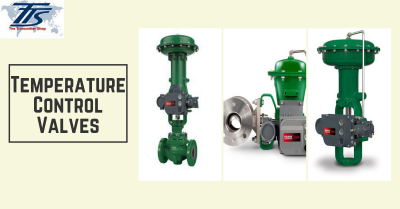
Brian Craig
September 27, 2021
Control valves are an integral part of various industrial applications, such as power generation units, oil and gas plants, fire prevention systems, and more. These control valves are available in different types and specifications. Temperature control valves are one of the popular valve types used today. These devices are designed to control the fluid temperature in the system to ensure efficient process operations. The temperature control valve controls the fluid flow, flow rate, and the process quantities, such as temperature, pressure, and liquid levels. Is that all? Obviously not. How does a temperature control valve work? What types of temperature control valves are in use today? Are you bothered with these questions? If yes, this post answers all questions regarding temperature control valves. So, stay tuned.
Read More...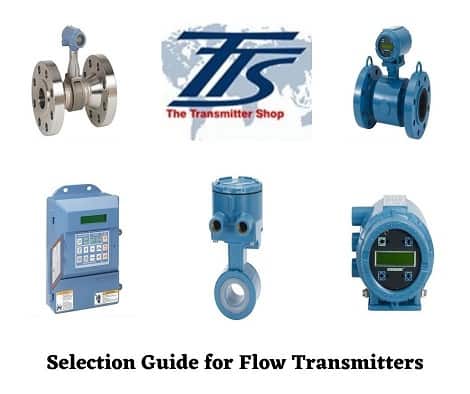
Brian Craig
July 23, 2021
Flow transmitters are the equipment used for flow measurement, monitoring, and control in industrial fluid transmission systems. The flow transmitters consist of flow sensors and a flow control mechanism. Being electro-mechanical equipment, these devices can be constructed according to the industrial flow control and monitoring requirements. Owing to the versatility in industrial flow monitoring and control operations, various types of metering and control mechanisms can be found in flow transmitters. This leads to an understandable confusion in the selection of an appropriate flow meter. Having a wide range of specifications and performance abilities of the flow transmitters, the selection of an appropriate flow transmitter becomes complex. This post guides the readers through the process of selecting an appropriate flow transmitter for optimum results.
Read More...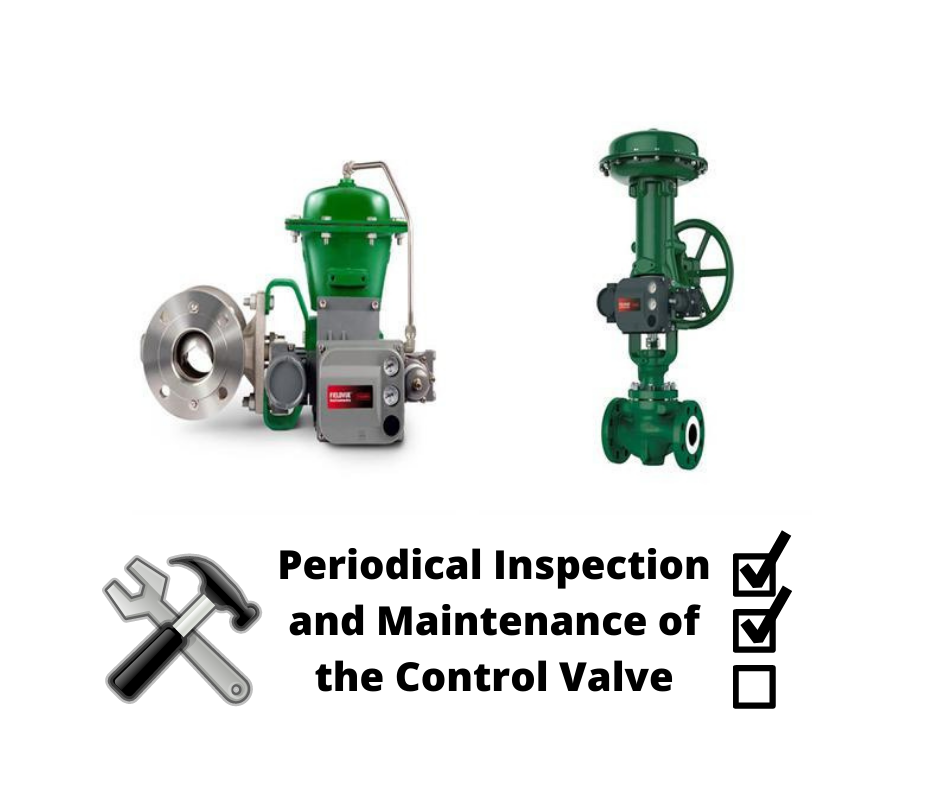
Brian Craig
July 19, 2021
The control valves are important parts of pumping systems. In fact, when it comes to controlled transmission and forwarding of fluids, the control valves are the most important components. This is why the maintenance of these devices is essential. Generally, the operators pay utmost attention to preventive maintenance of complete pumping units, but the individual control valve preventive maintenance is often overlooked. This ignorance towards control valve preventive maintenance can result in abrupt failure of the flow control valve. This eventually results in errors and failure of the fluid transmission units. This is why it is important to do preventive maintenance of control valves. If you are wondering how you maintain control, then this post is for you. Then this post discusses how to do the periodical inspection and maintenance of the control valve.
Read More...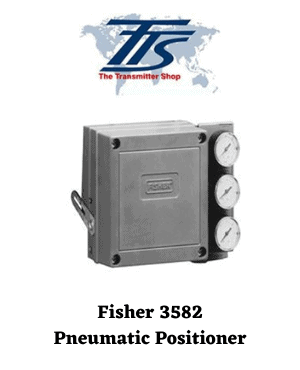
Brian Craig
July 12, 2021
Fisher 5383 pneumatic positioner is a single-acting positioner. It is an integral part of Fisher control valves and flow transmitters. The working of the positioner has to be precise to give calculated operations. If not, it can impact the overall performance of the control valve or a transmitter. Hence the calibration of the valve positioner is an inevitable maintenance activity. Being a positioner for precise control valves and transmitters, the Fisher 3583 pneumatic single-acting positioner requires appropriate calibration. This post introduces Fisher 5382 pneumatic positioner and guides through the calibration procedure for the same.
Read More...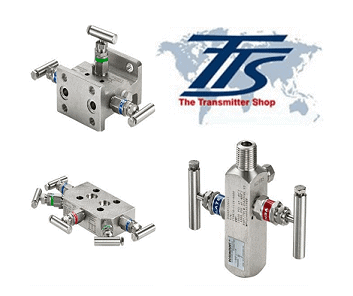
Brian Craig
July 07, 2021
Process instrumentation lines feature several instruments including process interface valves, impulse lines, manifolds, and transmitters, which are used to measure different process parameters such as flow, temperature, level, and pressure. The level of accuracy required for each of these parameters vary with each application. At times, a range of temperature or pressure is sufficient, while in some applications, exact and absolute value may be needed. The accuracy aspect and tolerances in an instrument are designed or customized accordingly. Process instrumentation has been in use since decades; however, the earlier devices were mainly mechanical. Now with technological advancements, you can have multiple functionalities in these instruments. For instance, a device such as a transmitter can measure relative as well as absolute pressure. If it finds any variations in values, it issues an alert to the connected computer or smartphone. Transmitters are an important part of this instrumentation. However, the entire loop and connectivity among these devices is just as important. So, instrument manifolds are used. This post discusses some ways or techniques for accurate pressure, flow, and level measurement in a process.
Read More...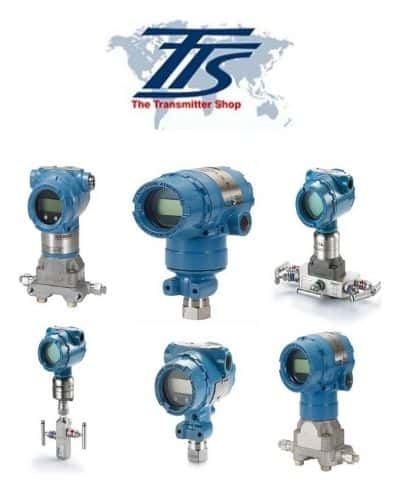
Brian Craig
June 21, 2021
Internal process pressure measurement is an important requirement in many industrial fluid systems. This pressure is measured using pressure gauges or gauge pressure transmitters. Thus, it can be rightly said that gauge pressure transmitters are an integral part of pressure warning systems in many industrial facilities. A pressure point is set and any value above and below that can impact the process quality, and may pose risk for operators and people working in the vicinity. However, pressure gauges may fail to perform as expected and this may be largely due to the failure of these devices. There are several reasons for the failure of these pressure gauges. Are you intrigued to know what they are and how these reasons can be prevented or fixed before they escalate? If it sounds yes, perhaps, this post is for you. It analyzes the top 5 reasons for gauge pressure transmitter failure and their fixing tips.
Read More...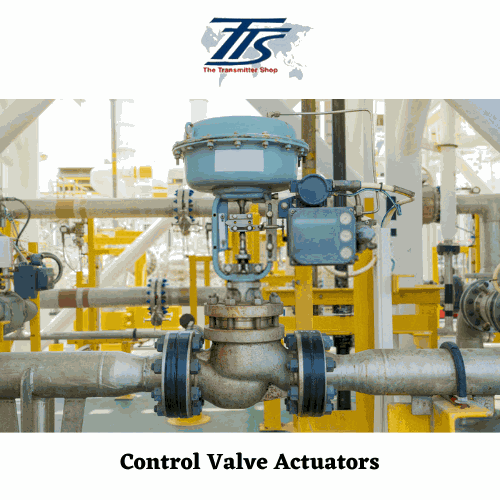
Brian Craig
June 03, 2021
The control valve actuators are the triggering units in control valves. These actuators are responsible for generating the motive force needed to operate the valves. The actuators can be operated using different types of energy provision systems such as hydraulic, pneumatic, manual, electrical, etc. Therefore, there are multiple types of valve actuators. Different types of actuators offer different operational parameters and performance efficiencies. Also, different types of these actuators feature different design specifications and scope for failure during applications. While using the actuators, it is essential to understand the types, and failure modes. That is why this post introduces valve actuators, different types, and failure modes for them.
Read More...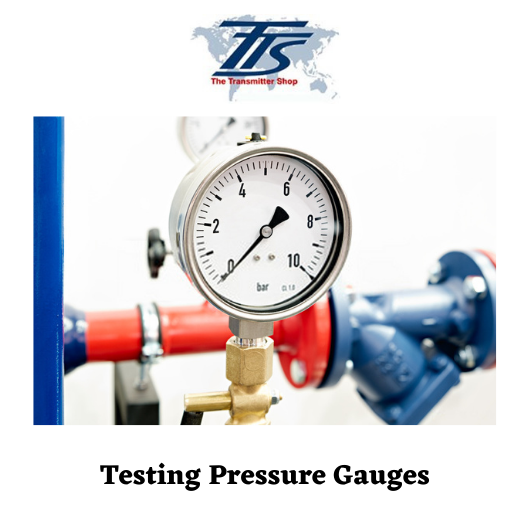
Brian Craig
May 28, 2021
Pressure gauges are the industrial equipment used for measuring pressure fluctuations. Generally, they are installed on the fluid transmission lines in industrial supply systems, fluid-operated equipment, etc. Pressure plays a crucial role in industrial process control. Hence the pressure gauges are of great significance. However, the performance of these gauges should be precise and accurate, otherwise, sudden pressure buildup, pressure drop, etc can cause damage to the industrial systems. This is why testing the pressure gauges before an application is essential. These gauges are often tested, calibrated, and validated before and during the application. The testing plays the most significant role in ensuring the performance and verification of these devices. There are multiple ways of testing gauges. Out of which functional testing and verification testing are mandatory and are performed by the manufacturers or users of these gauges. This post discusses the processes of verification and functional tests for these gauges.
Read More...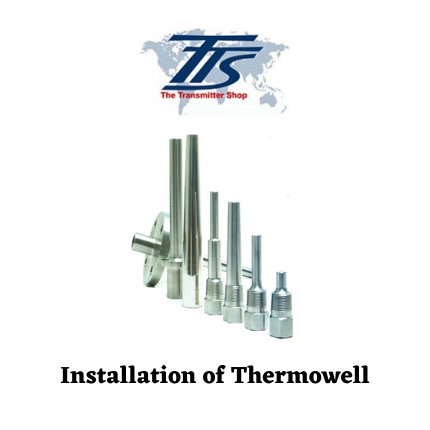
Brian Craig
May 28, 2021
Thermowells play an important role in industrial processes. These are cylindrical tubes used to protect thermal equipment like temperature sensors from coming in direct contact with fluids. Since temperature is a crucial factor of industrial processes, the protection of temperature sensors ensures the durability of thermal equipment and desired temperature measurement. However, these devices are only helpful if installed properly. If you are unaware of its installation procedure, then this post is for you. This post offers detailed guidelines for the installation of one or multiple Thermowells in industrial systems and important considerations related to it.
Read More...
Brian Craig
April 30, 2021
The accuracy of pressure transmitters plays a crucial role in-process monitoring and control across industries. Since pressure is an essential parameter of industrial processes, continuous and accurate monitoring of pressure is of utmost importance. Slightly incorrect measurement in value of pressure may result in pressure shoot-up, pressure drops, and eventually abrupt damage to industrial systems. Needless to say, such incidents pose hazards to operators. In high-pressure hydraulic and pneumatic systems, this can lead to fatal accidents. This is why accuracy of pressure transmitters cannot be jeopardized. Thus, calculation of accuracy of pressure transmitters should be done while selecting and troubleshooting the equipment. This post discusses the process and considerations of calculating accuracy of transmitters.
Read More...
Brian Craig
April 06, 2021
Pressure transmitters and pressure transducers, both act as advanced pressure gauges. Although the purpose of utilizing both these pressure gauges is nearly the same, the devices possess different technical specifications. Often the manufacturers and users of pressure transmitters and pressure transducers consider these devices interchangeable. However, they are not really interchangeable. They can be used for pressure level measurement but the performance characteristics of these two pressure gauges vary in various aspects. When it comes to the selection of a transmitter or a transducer, these devices are often pitted against each other due to incomplete knowledge about their functioning. This post offers an introduction and differentiating characteristics of pressure transmitters and pressure transducers which makes the selection convenient.
Read More...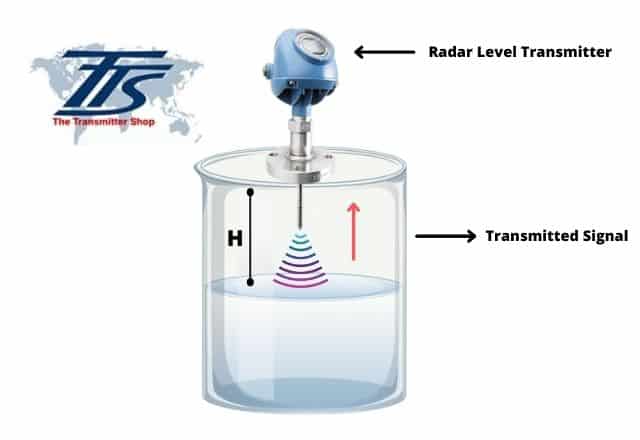
Brian Craig
April 01, 2021
Radar as a technology for years has been used to detect occupancy, sound, and so on, in many mission critical applications such as defense, aerospace, and others. Additionally, it is also used in applications where liquid level monitoring is required, such as certain industrial processes. Usually, there are many contact-based probes and sensors used for level measurement. However, guided wave radar level transmitters offer a non-contact measurement of liquids and gases levels in industrial processes. This post discusses what radar level transmitters are and how they work in level measurement applications.
Read More...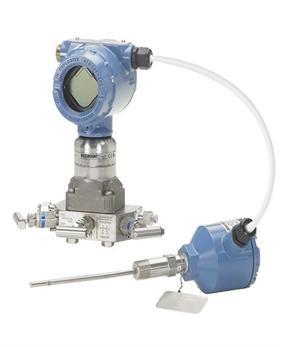
Brian Craig
March 12, 2021
Industrial operations are majorly dependent on different parameters, which require, regular monitoring, and control. Multivariable transmitters are one of the most used instruments for monitoring variables in various industrial processes. The multivariable transmitters are the transmitters that measure multiple parameters. Popular multivariable transmitters like Rosemount transmitter 3051 are designed to measure mass flow, differential pressure, temperature, and absolute pressure
Read More...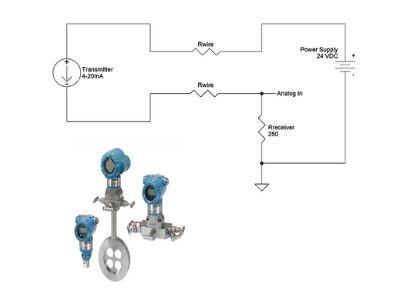
Brian Craig
February 26, 2021
A 4-20mA current loop output or signal is a standard scale of testing and troubleshooting the industrial process control or monitoring devices like pressure transmitters, flowmeters, etc. The modern process parameter control instruments like Rosemount pressure transmitter work on highway addressable remote transducer i.e.; HART protocol. The circuit includes an electronic 2-wire system with 4-20mA current loop output.
Read More...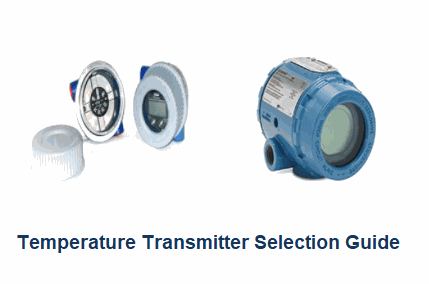
Brian Craig
February 23, 2021
Temperature transmitters are the devices used for temperature measurement and its display on the monitoring screen. These devices are often used for enhancing the integrity of process parameters. In industrial applications, there various types of temperature transmitters are utilized. Today, you can find various types of result-centric, cost-efficient, high-performance temperature transmitters.
Read More...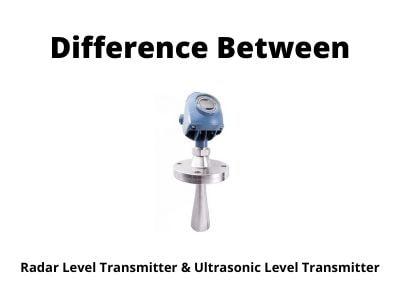
Brian Craig
January 13, 2021
Different types of level transmitters are used to control the level of liquids or semi-solid substances in a pressure tank or vessel. Radar level transmitters and ultrasonic level transmitters are most popularly used for level measurement.
Read More...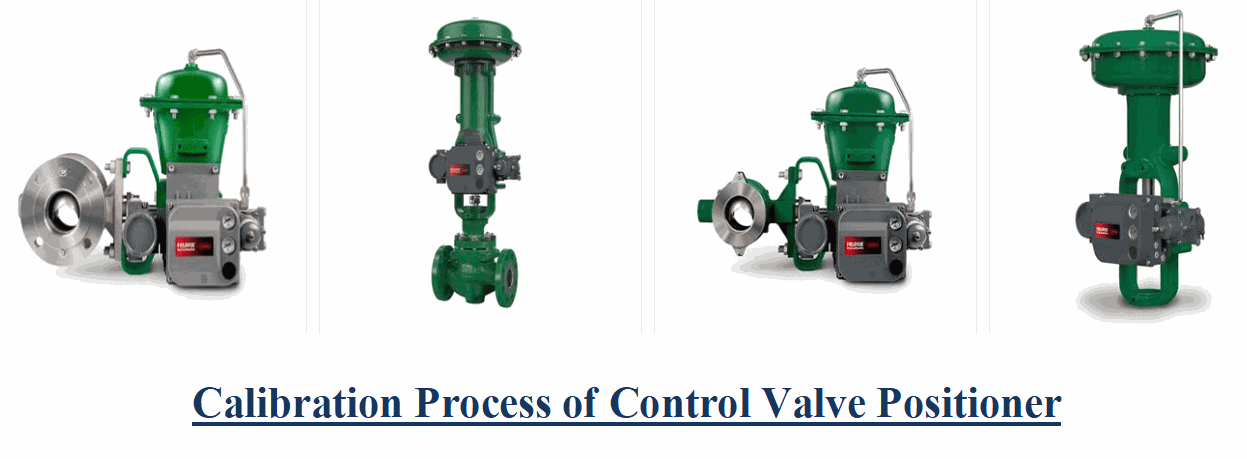
Brian Craig
November 23, 2020
The calibration of the control valve positioner is a crucial process and must be done properly for the desired results. Do you know how to calibrate the control valve positioner? If not, then the post leads you through the important steps of control valve positioner calibration and more.
Read More...
Brian Craig
November 23, 2020
In the fluid transmission system, several types of devices are used to measure and control the process parameters. The flow meter and the flow transmitter are two important devices used in such systems. For some reason, these two devices are often considered the same. Sometimes their functions are interchanged. However, in reality, both these devices and their functions are quite different than each other. This post introduces the flow meters and the flow transmitters individually and helps you to understand the difference between these devices.
Read More...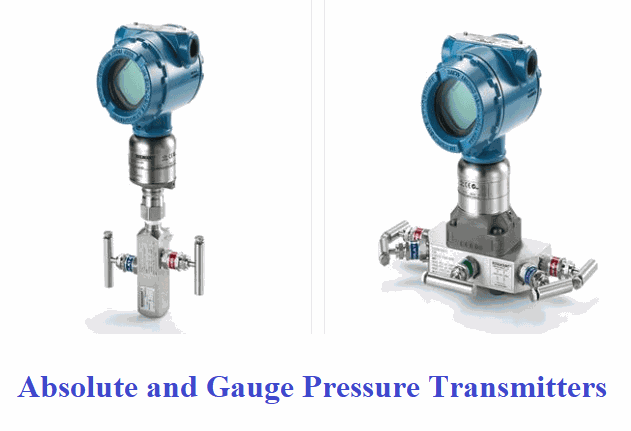
Brian Craig
October 06, 2020
There are different types of pressure transmitters in use today. Absolute pressure transmitter and gauge pressure transmitter are two popular choices. Would you like to know more about them? This post discusses both pressure transmitters in detail. So, stay tuned.
Read More...
Brian Craig
September 17, 2020
A thermocouple sensor is one of the many types of temperature sensing devices used in measuring different variables in industry applications. They are often used for temperature measurement and control at gas turbine exhausts, diesel engines, high-temperature furnace operations, etc. This post discusses what thermocouples are and how do they work.
Read More...-min.png)
Brian Craig
September 07, 2020
Today, HART protocol has become an industry standard for industrial automation. This post analyzes HART protocol, its working, benefits, and everything else you want to know about it.
Read More...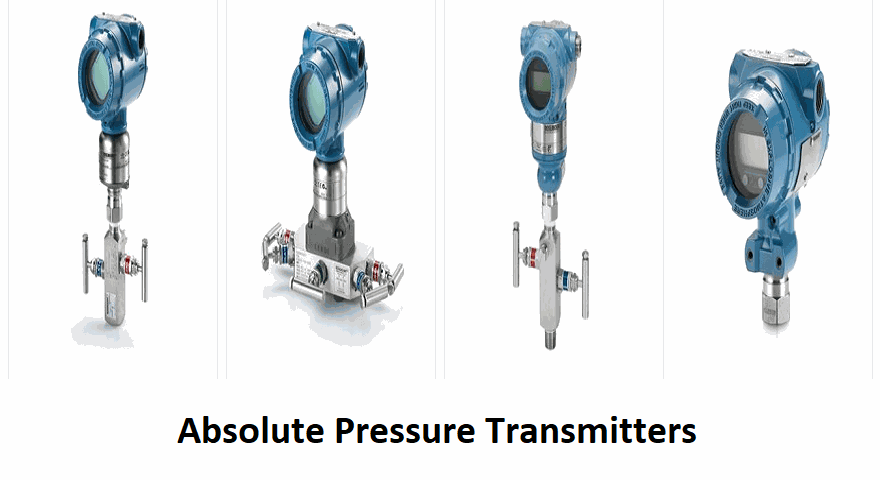
Brian Craig
August 25, 2020
Absolute pressure transmitter measures pressure in a complete vacuum with no contents inside. The measurement taken in absolute pressure uses absolute zero as the reference point. So, here there is no comparison in terms of pressure changes or relativity. With such importance in many industrial processes, it is essential to understand the working of these transmitters along with their applications. This post discusses the same.
Read More...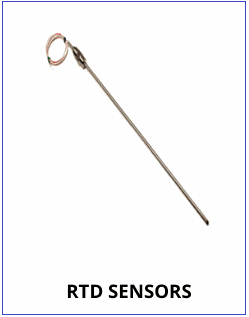
Brian Craig
August 14, 2020
RTD sensors are known to be accurate in their readings and designed for stability in harsh environments. This means they are resistant to extreme temperatures, vibration, shock, and so on. This post discusses the details about RTD sensors, their working, and more.
Read More...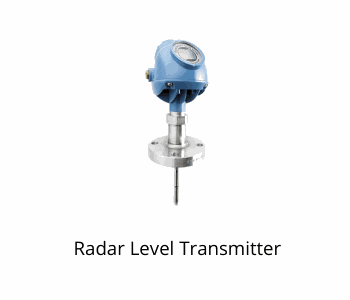
Brian Craig
July 02, 2020
The radar level transmitters are widely used for level measurements in different applications. There are two types of radar level transmitters – non-contact systems and contact systems. Before making a buying decision, it is important to understand these systems and their underlying technologies in detail. The setup and working principle were discussed in detail in the previous post. This final part of the two-part post gives insights about radar transmitter functioning technologies and its industrial significance in terms of applications.
Read More...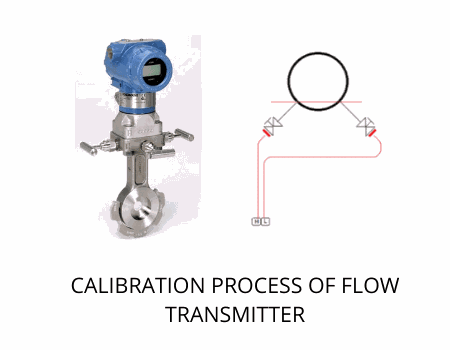
Brian Craig
June 25, 2020
There are several manufactures that offer quality flow transmitters like Rosemount flow transmitters, Foxboro flow transmitters, etc. Each transmitter is calibrated differently. However, the basic steps of the calibration process remain the same. This post introduces different processes of flow transmitter calibration.
Read More...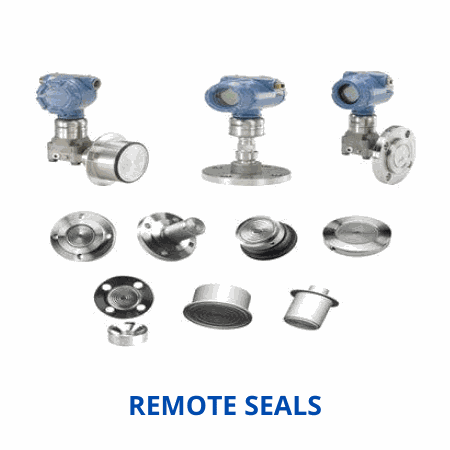
Brian Craig
June 08, 2020
Remote seals are flexible membranes that are used in pressure equipment to protect them from damaging media. These seals are often used in devices such as pressure sensors, pressure transmitters, pressure switches, and so on. Remote seals are also known as chemical seals or diaphragm seals. How do these seals work? What are its advantages? This post introduces you to remote seals and then focuses on their industrial significance, applications, and more.
Read More...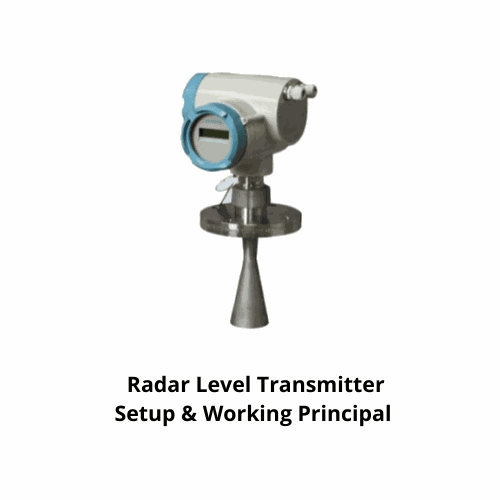
Brian Craig
May 28, 2020
Radar level transmitters electronic devices that are used for fluid level measurement. As the name suggests, these level transmitters use radar technology for fluid level detection. These transmitters function on the basis of electromagnetic waves at a range of 10GHz under microwave X-band bandwidth. Due to non-contact level measurement, these level transmitters have found their place in industries like mining, boiler technologies, paper and pulp industries, etc. How do these transmitters work? Why they have gained prominence in various industries? This is a two-part blog answer everything that you would like to know about these transmitters.
Read More...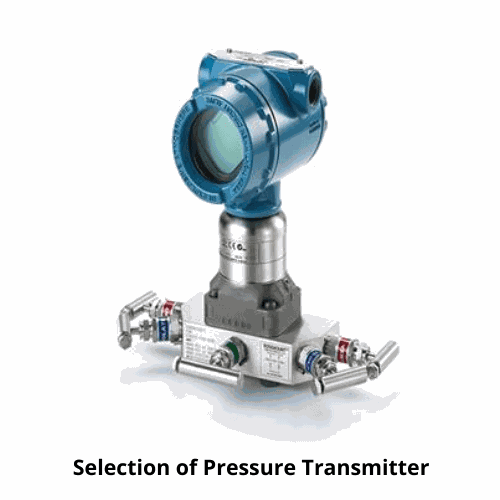
Brian Craig
May 26, 2020
A pressure transmitter is a device that converts pressure into the analog signal. As the technology is developing, the transmitters are getting smarter, day by day. Therefore, the application of pressure transmitters is getting extravagant and its selection is being difficult. Since the pressure transmitters are mainly used for industrial processes, selecting a pressure transmitter becomes a complex process. It requires consideration of specific and critical industrial factors that not everyone can do without proper knowledge. Therefore, this post sheds light on factors to consider while selecting pressure transmitters.
Read More...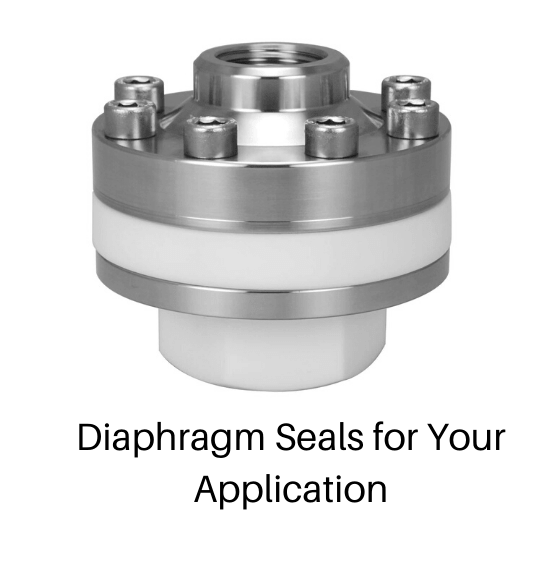
Brian Craig
April 02, 2020
Transmitters, switches, and pressure gauges find application in various process applications across the world. Although they are designed to withstand abusive work environments, sometimes they may fail due to various reasons.
Read More...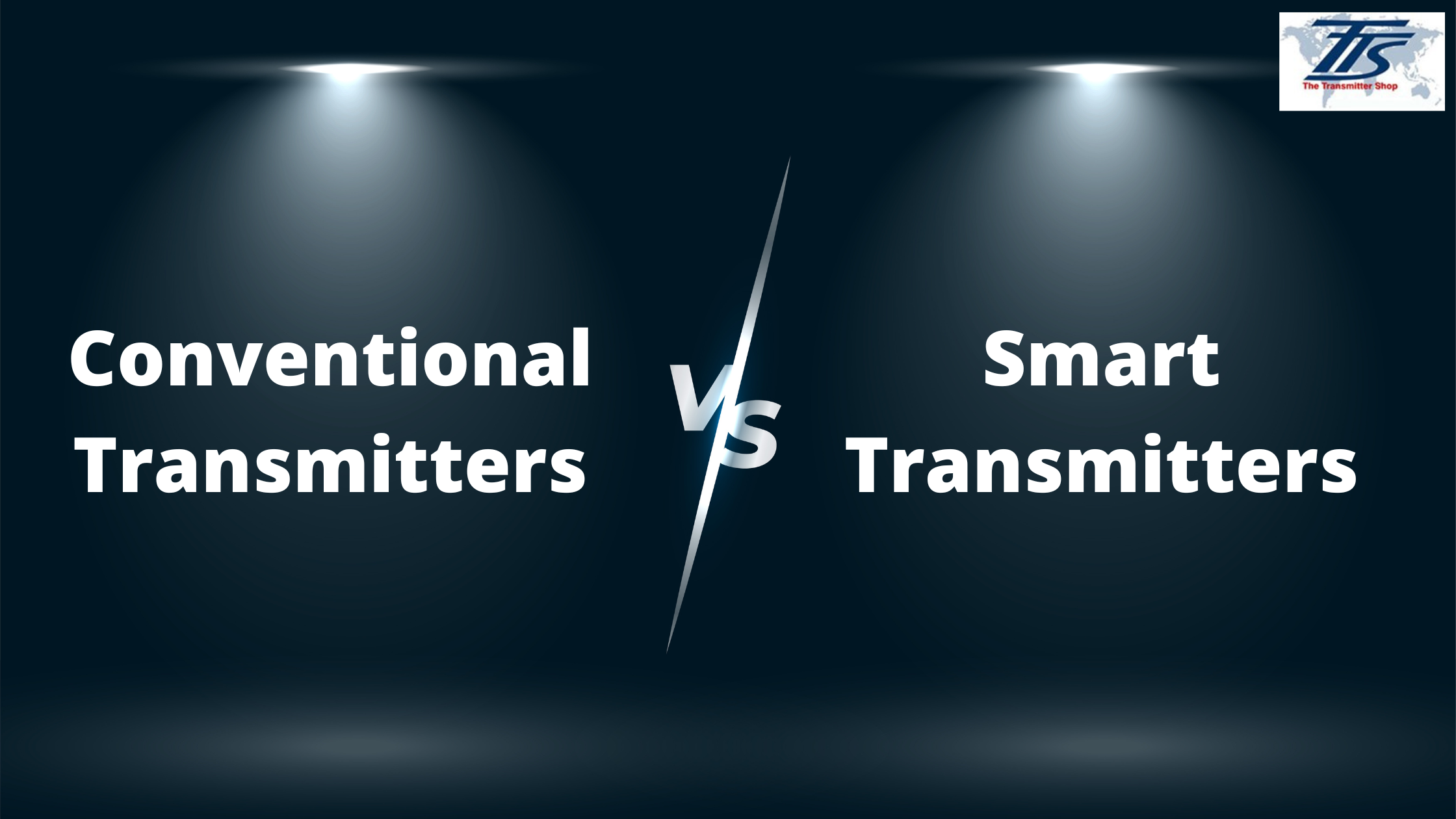
Brian Craig
March 27, 2020
Transmitters are used to measure variables in industrial applications. Even if conventional transmitters were working just fine, various industrial applications demand precision, performance, and reliability. Therefore, smart transmitters have gained significance in recent years. This post helps you understand the difference between conventional and smart transmitters, and what makes smart transmitters a better option.
Read More...
Brian Craig
February 07, 2020
A diaphragm seal is an enclosure or a flexible membrane, which safeguards several types of pressure instruments. This seal is flexible so that it permeates internal pressure outside but seals the contents safely. These are mounted along with pressure gauges, switches, transmitters so that these instruments can be used in harsh environments and extreme weather conditions.
Read More...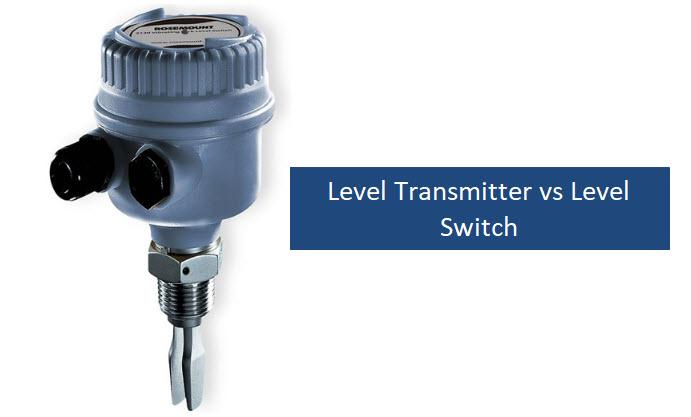
Brian Craig
December 26, 2019
Level sensing is an important requirement in industries that utilize different types of fluids for functioning. The increase or decrease in the levels of a fluid may alter the results of the end process, or may also adversely affect people and environment around. To avoid this, industry users rely on various types of level sensing devices such as level switches and level transmitters. These devices help users measure the level of fluids accurately and avoid untoward incidents. Although the aforementioned devices are designed to measure the levels of fluids in various applications, they differ in terms of their operation. What is the difference between a level switch and a level transmitter? How to choose the right device for your application? Read the post to find answers.
Read More...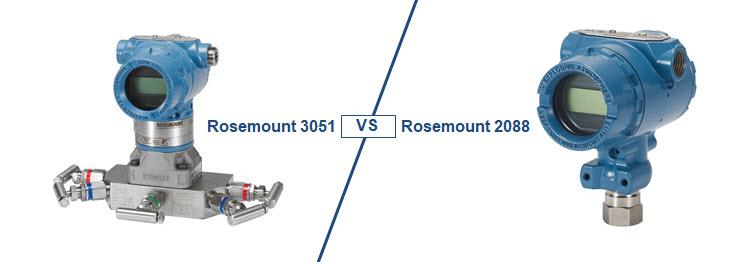
Brian Craig
November 08, 2019
Rosemount transmitters by Emerson have set the industry standards for pressure, temperature, and flow measurements. Today, various types of Rosemount pressure transmitters are used across industries for accurate measurements. Rosemount 3051 and Rosemount 2088 are two popular pressure transmitters used today.
Read More...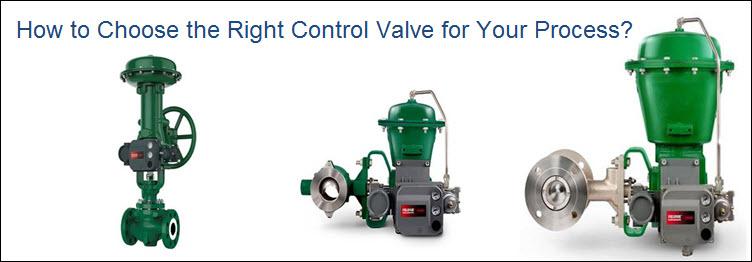
Brian Craig
August 26, 2019
Control valves play an important role in various process industries. They are designed to control the flow of fluids in a system. They are designed to start and stop as well as throttle the fluid flow to ensure efficient process operation. Owing to their increasing use in process industries, today, it is easy to find these valves in different specifications. This large selection may be confusing to users who are purchasing it for the first time. There are several factors to be considered when making a selection. This post aims to ease the control valve selection by providing a few easy-to-follow tips.
Read More...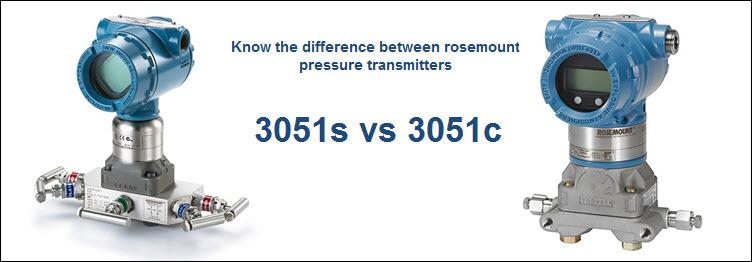
Brian Craig
July 29, 2019
Know the main differences between the Rosemount 3051C vs 3051S transmitter. The Rosemount 3051 transmitters are known for their accuracy, user-friendly designs, and reliability. These transmitters are widely used across various process industries that depend on accurate level, pressure, and flow measurements for functioning.
Read More...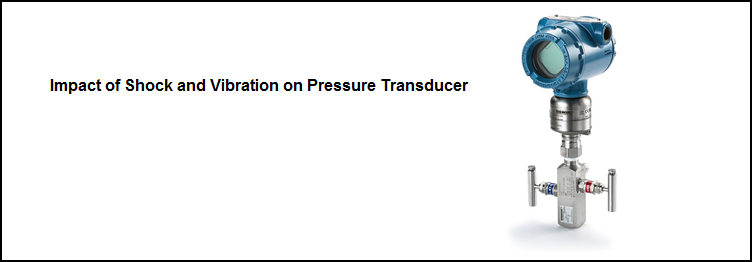
Brian Craig
July 09, 2019
A pressure transducer is a device that measures the pressure of gases or liquids. They are used in applications requiring high-resolution and accurate measurement of pressure. They are highly sensitive, and a few factors need to be considered during and before their installation to get the desired results. Vibration and shock are commonly overlooked factors. They are the worst enemies of pressure transducers and are not easily identifiable. Would you like to know how shock and vibration impact the performance of a pressure transducer? How to prevent pressure transducer problems? Read the post to know more.
Read More...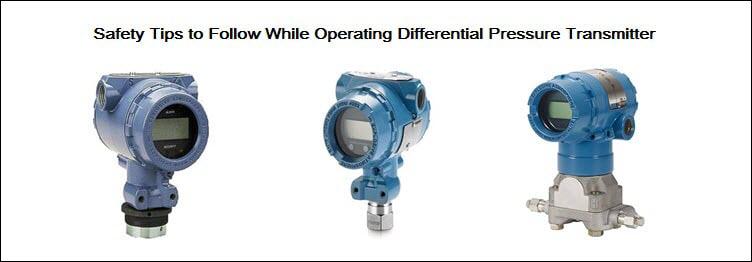
Brian Craig
May 24, 2019
Differential pressure transmitters are devised to quickly measure the pressure difference of closed and pressurized tanks, pumps or filter controlling, among others. Available in several models, these instruments are largely used across oil and gas, chemical, petrochemical, energy, food and beverage, paper industries. The instrument, which is made to offer high accuracy and the best long-term stability, is designed for cost-efficiency and ease-of-installation even in confined spaces.
Read More...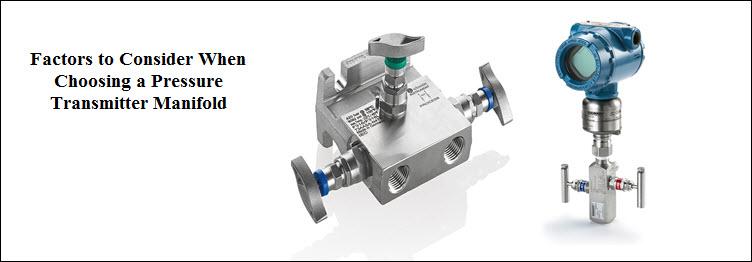
Brian Craig
May 23, 2019
Physical parameters such as pressure and temperature are crucial in some industries such as oil & gas, chemical, wastewater, petroleum, pharmaceutical, and food & beverages. In most of these industries, pressure needs to be monitored, controlled, and maintained continuously or till a certain process stage is over.
Read More...
Brian Craig
March 19, 2019
Pressure sensors are devices used to measure the pressure of liquids and gases. These devices are also known as pressure transducers or pressure transmitters, and are used for controlling and monitoring pressure in a number of day-to-day applications such as touch screen devices, biomedical instruments, and automobiles. They sense pressure in a liquid or gas, and convert it into an electrical signal. Pressure sensors are a must in most industries where pressure needs to be monitored and maintained on a regular basis. This post offers tips to improve the performance of pressure sensors in your application. It also discusses the factors you should consider when selecting a pressure sensing device.
Read More...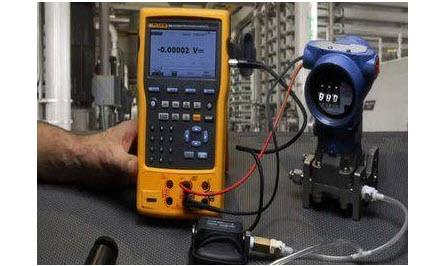
Brian Craig
February 18, 2019
Pressure transducers are used in various industries to measure the pressure of a given fluid and stop it from expanding. Differential pressure transducers are one of the important types of pressure transducers widely used across industries to measure the difference in a liquid’s gauge pressure when flowing through a pipe. They are also used to measure the difference between the pressures of two fluids.
Read More...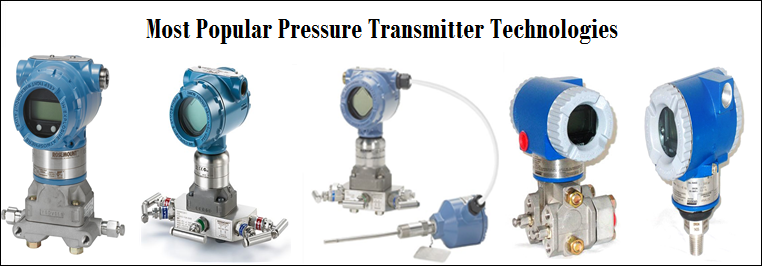
Brian Craig
December 26, 2018
Pressure transmitters are an integral part of the process industries across the globe. These instruments are designed to measure the pressure of gases and liquids used in these industries. With such an important role to play, their underlying technologies are also gaining importance. Initially, the pressure transmitters were equipped with capacitance and piezo-resistive technologies.
Read More...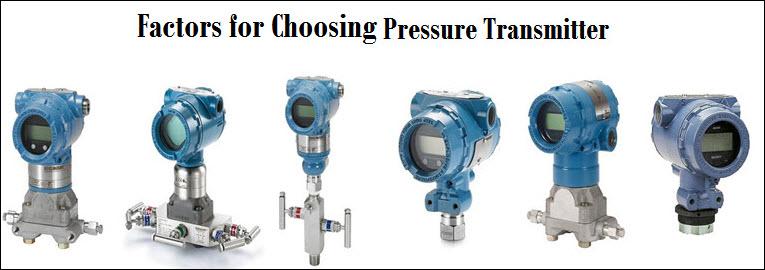
Brian Craig
November 21, 2018
Over the years, pressure transducers have proved to be a convenient, accurate and reliable means of measuring fluid pressure in a wide variety of applications from HVAC/R compressors, variable speed pumps to industrial pipelines, among others. Unlike the past, there are several models of pressure sensors available with advanced heat dissipation, reduced creep and hysteresis effects, among others for use in the harshest environments with the presence of the most hostile and corrosive media.
Read More...
Brian Craig
November 01, 2018
Nowadays, pressure sensors are technologically advanced and designed to offer reliable performance than earlier ones. Most of these pressure transmitters are designed for long-term performance even in harsh environments of industrial, automotive, aerospace, gas turbine, oil processing, nuclear plant, and power station applications. Although they are built ruggedly using time-tested components, they are also prone to failure or sudden breakage at any time during their service life.
Read More...
Brian Craig
October 19, 2018
The pressure transmitters are used in the process industry for measuring several variables, such as temperature, pressure, flow, etc. With their importance slowly increasing, today, it is easy to find a wide variety of pressure transmitters in different specifications and prices ranging from $40 to $400. There are lots of factors that contribute to this price difference. Do you want to know how $40 pressure transmitters are different from $400 transmitter units?
Read More...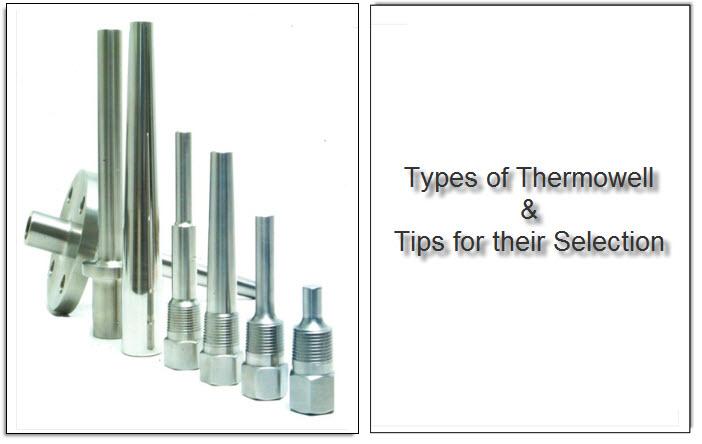
Brian Craig
October 05, 2018
Temperature sensors are extensively used across various industries for temperature measurements. These devices are regularly subjected to high pressure, corrosive environments, material velocity, etc. Regular exposure to these environments may damage the sensors, which is why they are guarded using components such as thermowells. Do you want to know what these components are? This post discusses the thermowells in detail.
Read More...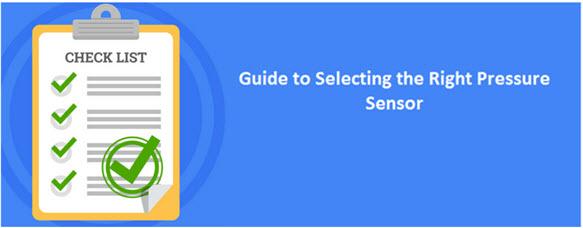
Brian Craig
September 14, 2018
Pressure is a factor that decides the fate of many equipment and, hence processes. Too much pressure can lead to accidents, whereas too less pressure can cause failure in proper functioning of many processes. Pressure sensor is used in a wide range of applications, which involve measuring the pressure of liquid or gas.
Read More...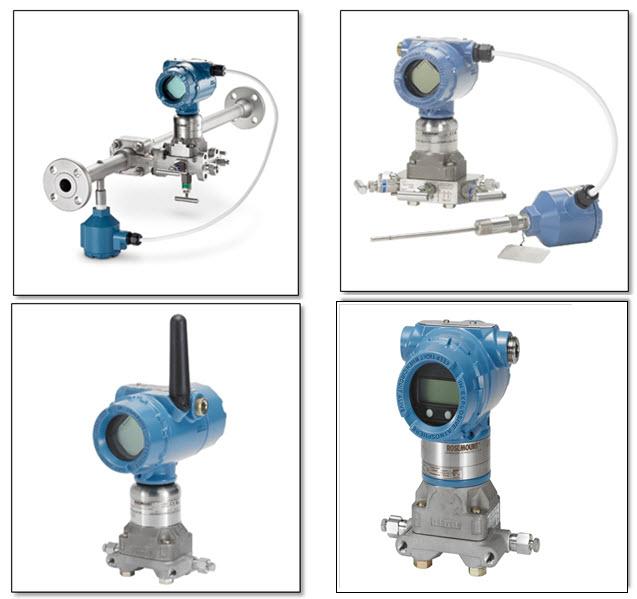
Brian Craig
September 04, 2018
Pressure transmitters, which are also commonly referred to as pressure transducers, are the devices, which are used to convert pressure into an electrical signal. This signal can then be used to drive further circuitry. Over the years, these transmitters have seen a lot of developments, and technological advancements. There are a variety of pressure transmitters being used today, and each type has its own set of properties, and features.
Read More...
Brian Craig
August 13, 2018
Temperature measurement is required in most industries. This is done by making use of various devices that help measure the temperature. This goes a long way into helping you adjust the right temperature required for the particular industrial process or procedure. However, it is important to ensure that the measured temperature is accurate, or precise to maintain the efficiency of the process, and also that of the machine or equipment.
Read More...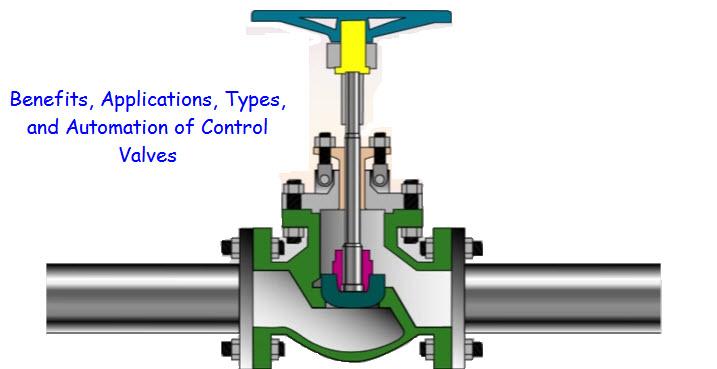
Brian Craig
August 01, 2018
A vast variety of equipment and machines are used in different industries, in order to carry out various processes efficiently, and smoothly. One such widely used equipment employed in most industries for process control applications is a control valve. These valves come in different types, and have different construction, physical properties, features, and applications.
Read More...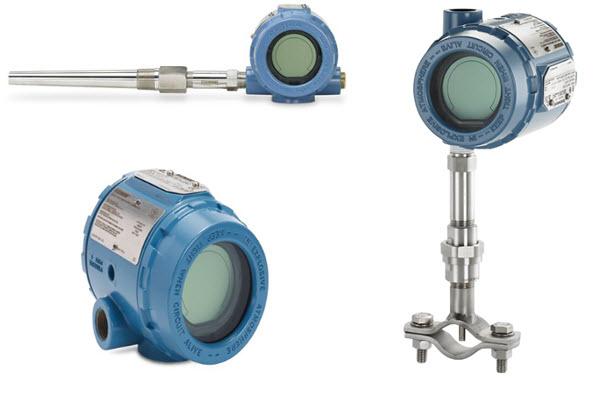
Brian Craig
July 23, 2018
Temperature transmitters are available in several models with a wide range of configurations. Therefore, selecting the best and performance-driven transmitter brand from the several ones available would be a little tedious task. The aim of this post is to familiarize you with one such popular temperature monitoring units, namely Rosemount 3144P transmitter.
Read More...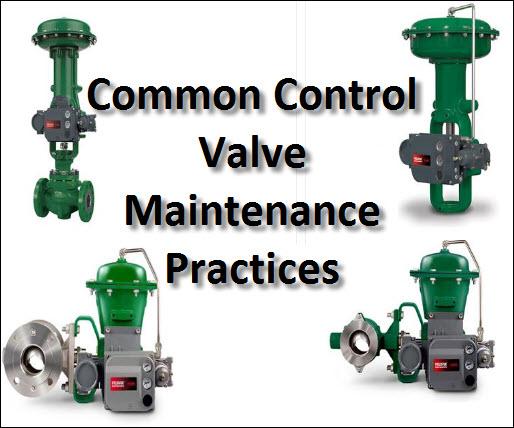
Brian Craig
July 17, 2018
The control valves are an integral device in oil and gas plants, fire prevention systems, power generation units, and various other applications. Also, they are one of the most overlooked devices in terms of maintenance. However, if not provided with proper maintenance, these units fail to operate to their maximum efficiency, which in turn leads to several
Read More...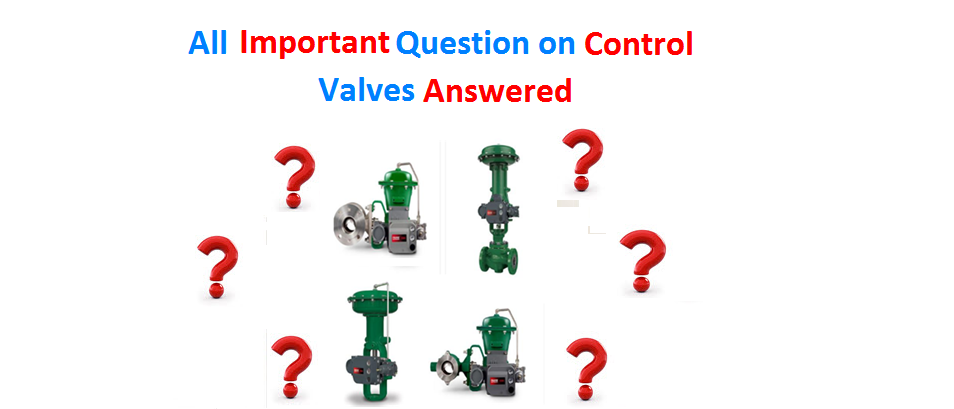
Brian Craig
May 21, 2018
The valve industry has seen a tremendous growth in the last century. The valves have become an integral part of several industries, because they are specifically developed to meet typical requirements. The control valves are one of the important types of valves used in various process industries to meet flow requirements. How do they work?
Read More...
Brian Craig
May 16, 2018
A huge variety of smart instruments are gaining popularity in the process industry, due to various reasons. These instruments are known to provide several benefits, which are valued in the said industry. Smart transmitters are one such instruments, which are valued for distinct services that they offer.
Read More...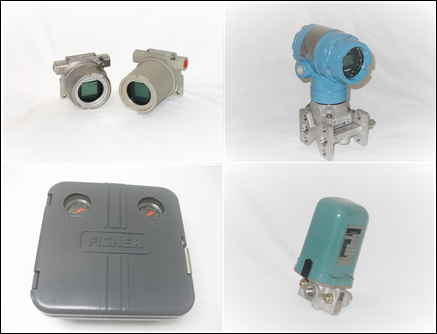
Brian Craig
April 20, 2018
Industrial transmitters are types of electronic devices, which are designed to provide accurate measurements in terms of pressure and temperature. The use of transmitters allows for the monitoring and control of applications, thus ensuring safety, stability, and reliability of processes. As a part of the transducer group, transmitters are designed with additional reset and calibration
Read More...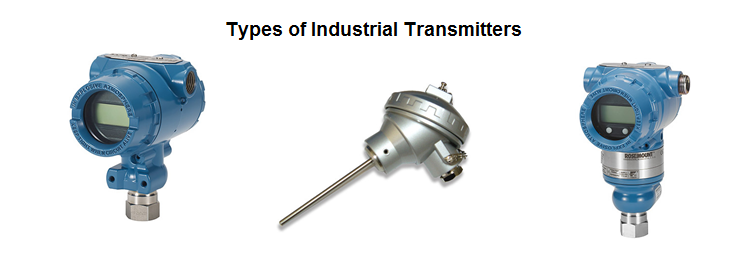
Brian Craig
April 20, 2018
In the preceding post, we had mentioned that transmitters are divided into three groups – type, signal production, and process instrumentation. We had also provided details of pneumatic and electronic transmitters, and its subtypes. In this post, we shall look at the transmitters, which are utilized for process instrumentation purposes. Various Types of Process Instrumentation
Read More...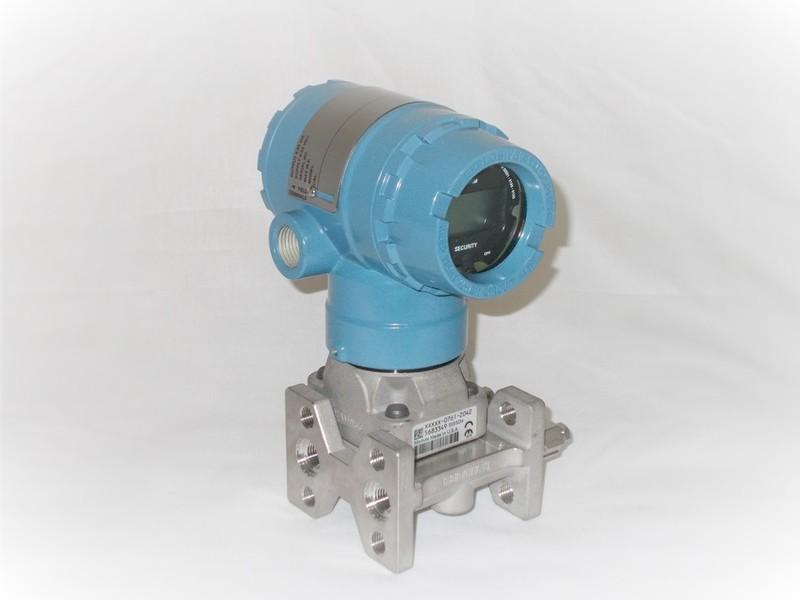
Brian Craig
April 20, 2018
Rosemount pressure transmitters are industrial standard transmitters used in various process industries to measure level, flow, and pressure in the fluid, liquid, and viscous mediums. These pressure transmitters are designed to eliminate on-site testing, assembly, and calibration. Although many businesses are aware of the potential benefits of these transmitters, they avoid purchasing it due to
Read More...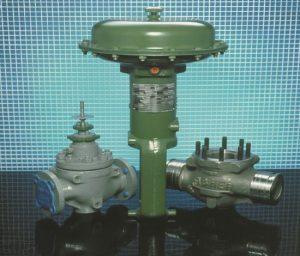
Brian Craig
April 20, 2018
Control valves, also known as control nozzles, are essential products used in many industries. One of their most well-known applications is the oil and gas industry. Control valves are used to control operating conditions such as flow, temperature, pressure, and liquid levels. They accomplish this by opening the valves partially, or completely after receiving signals
Read More...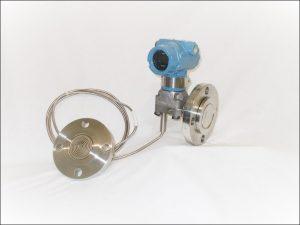
Brian Craig
April 20, 2018
The Rosemount 1199 direct mount transmitters are designed as remote diaphragm seal systems As the name suggests, they can be mounted directly onto the application system. They are mainly chosen for applications involving pressurized liquids. They protect pressure transmitters from excess process temperatures. Let’s discuss this product in detail. Rosemount Direct Mount Transmitters Design and
Read More...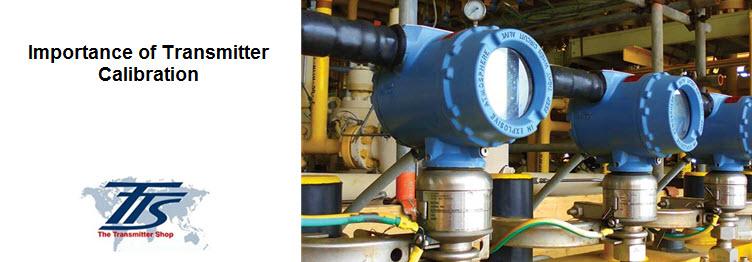
Brian Craig
April 20, 2018
Transmitters are used in various process industries to measure temperature, pressure, level, and flow of media. The plant operators use the readings provided by these transmitters to optimize their processes. Thus, any incorrect measurement in pressure, temperature, or level may be detrimental. This is why organizations emphasize on transmitter calibration. What is calibration? Why is this process important?
Read More...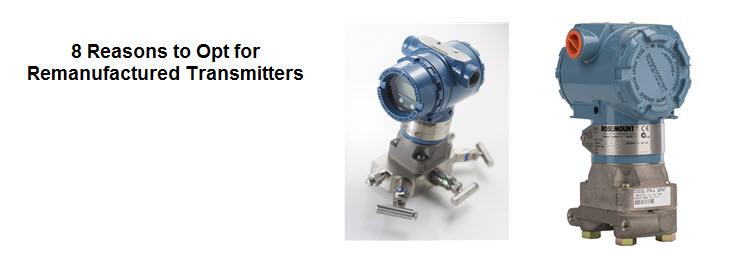
Brian Craig
April 20, 2018
The remanufacturing industry offers tremendous benefits to organizations. Generally, the quality of remanufactured products is at par with the original equipment while the price is substantially reduced. The carbon footprint of remanufactured equipment is much
Read More...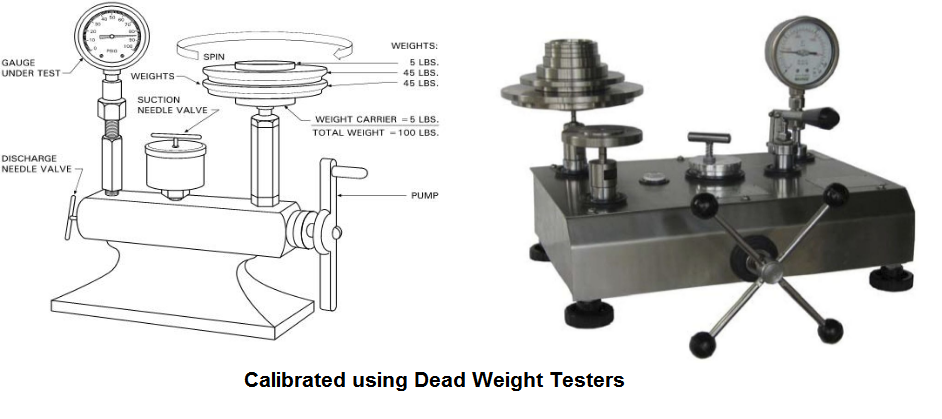
Brian Craig
March 15, 2018
Today, a variety of transmitters are being used to measure parameters, such as temperature, pressure, flow, level, etc. An instrument, which is used to measure the pressure of a fluid is referred as a pressure gauge. These gauges are used in several industries. However, for an accurate reading of the fluid pressure, these instruments require
Read More...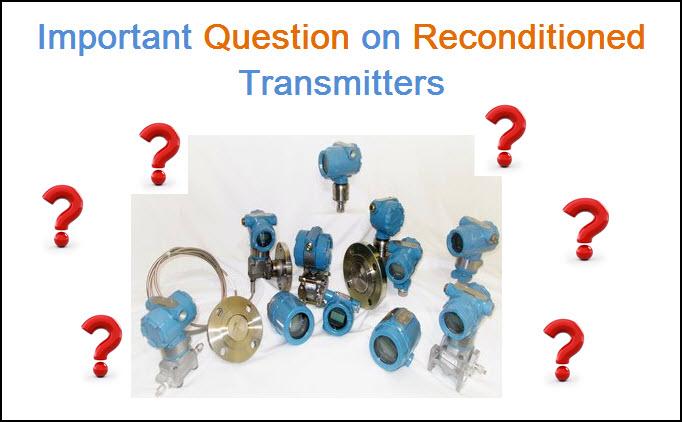
Brian Craig
January 25, 2018
Transmitters are used in various process industries to measure pressure, temperature, and levels of fluid (liquid, and gases). These transmitters can be extremely expensive, especially if you are buying new ones from well-known brands. If you wish to use high-quality transmitters, without paying high prices, consider buying reconditioned ones. Many users are still reluctant to
Read More...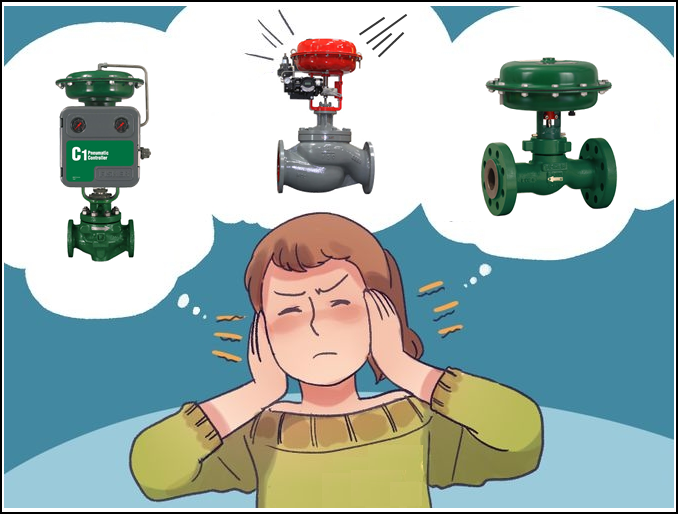
Brian Craig
October 17, 2017
There are various types of equipment and instruments used in fluid flow measurement and control applications. Out of the many instruments, a control valve is one of the most widely used instruments. As the name suggests, control valves are used to control and regulate the fluid flowing through a pipe. It plays a vital role
Read More...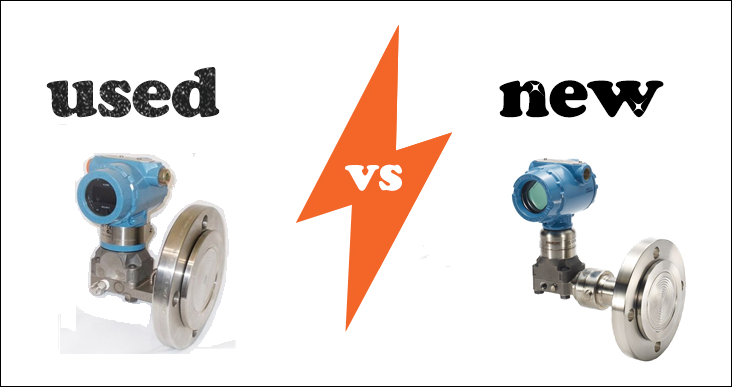
Brian Craig
October 11, 2017
Transmitters are among the most important equipment used for the purpose of measuring a number of parameters, such as pressure, temperature, level, flow, etc. Different transmitters are used for measuring diverse parameters. These measurement transmitters are available in the market, and can be availed in two options – new or remanufactured. Both the options are
Read More...
Brian Craig
July 17, 2017
Flow measurement is basically the process of determining the fluid flow in a plant or an industry. This measurement can be done with the help of various devices, such as positive displacement meters, differential pressure transmitters, Coriolis, magnetic meters, etc. However, differential pressure transmitters are being used on a large scale for flow measurement in
Read More...
Brian Craig
June 22, 2017
A pressure transducer is a device, which converts the pressure applied to it into a measurable electrical signal. These transducers are used in applications, such as leak testing, altitude sensing, pressure sensing, depth or level sensing, and more. However, if these transducers are not calibrated over time, they may start showing false readings, which
Read More...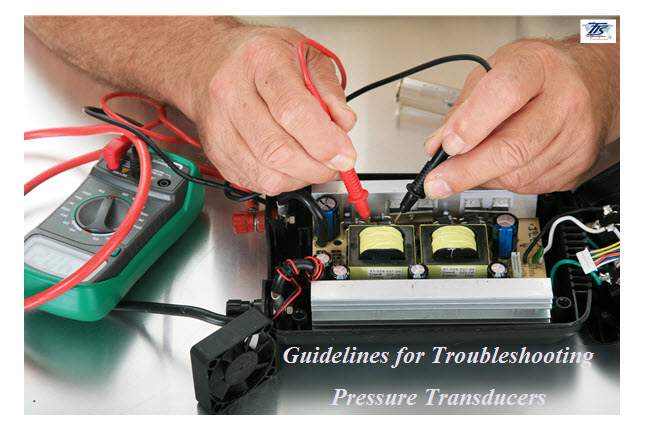
Brian Craig
May 04, 2017
Pressure transducers, also known as pressure transmitters or pressure sensors, are used to convert pressure into analog electrical signals. Stain gages are bonded into the diaphragm of the transducer. The gages are wired into a Wheatstone bridge configuration. The deformation of strain gages converts pressure into an electrical signal, which is used to drive further
Read More...
Brian Craig
April 20, 2017
Transmitter calibration requires meticulous preparation. In the preceding post, we have discussed basic setups for calibrating a pressure transmitter. Here we will discuss how to proceed with pressure transmitter calibration. Steps to Calibrate a Pressure Transmitter After completing all the preliminary requirements, you can proceed in the following ways: Calibrate the 0%, Lower Range Value
Read More...
Brian Craig
April 15, 2017
Transmitters are used in the process industry environments to measure pressure and other parameters. The plant operators rely upon these devices for accurate measurements and process optimization. The performance of these transmitters may weaken with time due to several factors. This is when they need calibration. During calibration, a comparison is made between the current
Read More...
Brian Craig
April 06, 2017
Pressure transmitters are used to measure the pressure of liquids, fluids, and gases in the process industry. Also, known as pressure transducers, these equipment do more than just checking the pressure of the working equipment. Over the years, process companies have identified interesting uses of these pressure measurement devices. What are they? Read the post
Read More...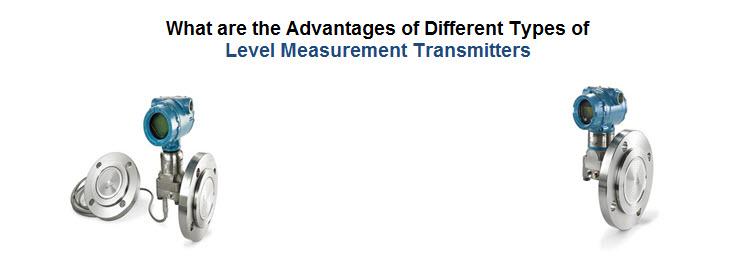
Brian Craig
March 22, 2017
Accurate control of the liquid level in a reactor, tank, or other vessel is essential in several process applications. To ensure the profitability and safety of industrial processes, it is necessary that the vessel should be equipped with instruments that provide consistent and accurate level measurements. All level measurements include interaction between a sensing device,
Read More...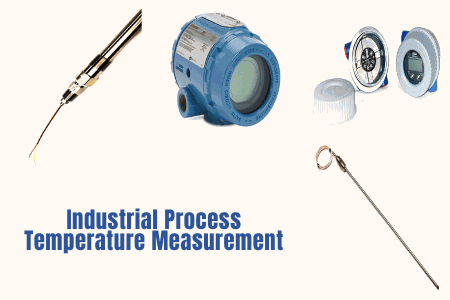
Brian Craig
February 02, 2017
Temperature is one of the most important measurement parameters that is used for monitoring and control in various industries. It can be measured with the help of a diverse temperature measurement devices. This post will discuss how temperature measurement is important in different industries. It will also detail different types of temperature measurement equipment. How
Read More...- Flow Measurement Challenges in Subsea Operations
- Pressure Sensing Sensor Modes of Measurement Key Differences and Benefits
- Electromagnetic Flow Sensors for Abrasive and Corrosive Fluids
- Mass Flow Meters and Their Working Principles
- Best Explosion Proof Switches for Hazardous Environments
- Best Explosion Proof Switches for Hazardous Environments
- Furnace Flame Sensor Faults Everything You Need to Know for Safe Operation
- Pneumatic Pressure Controllers: A Safe Choice for Hazardous Areas
- A Practical Guide to Vacuum Measurement and Operation
- Understanding Electrochemical Detection: Principles, Techniques and Environmental Application